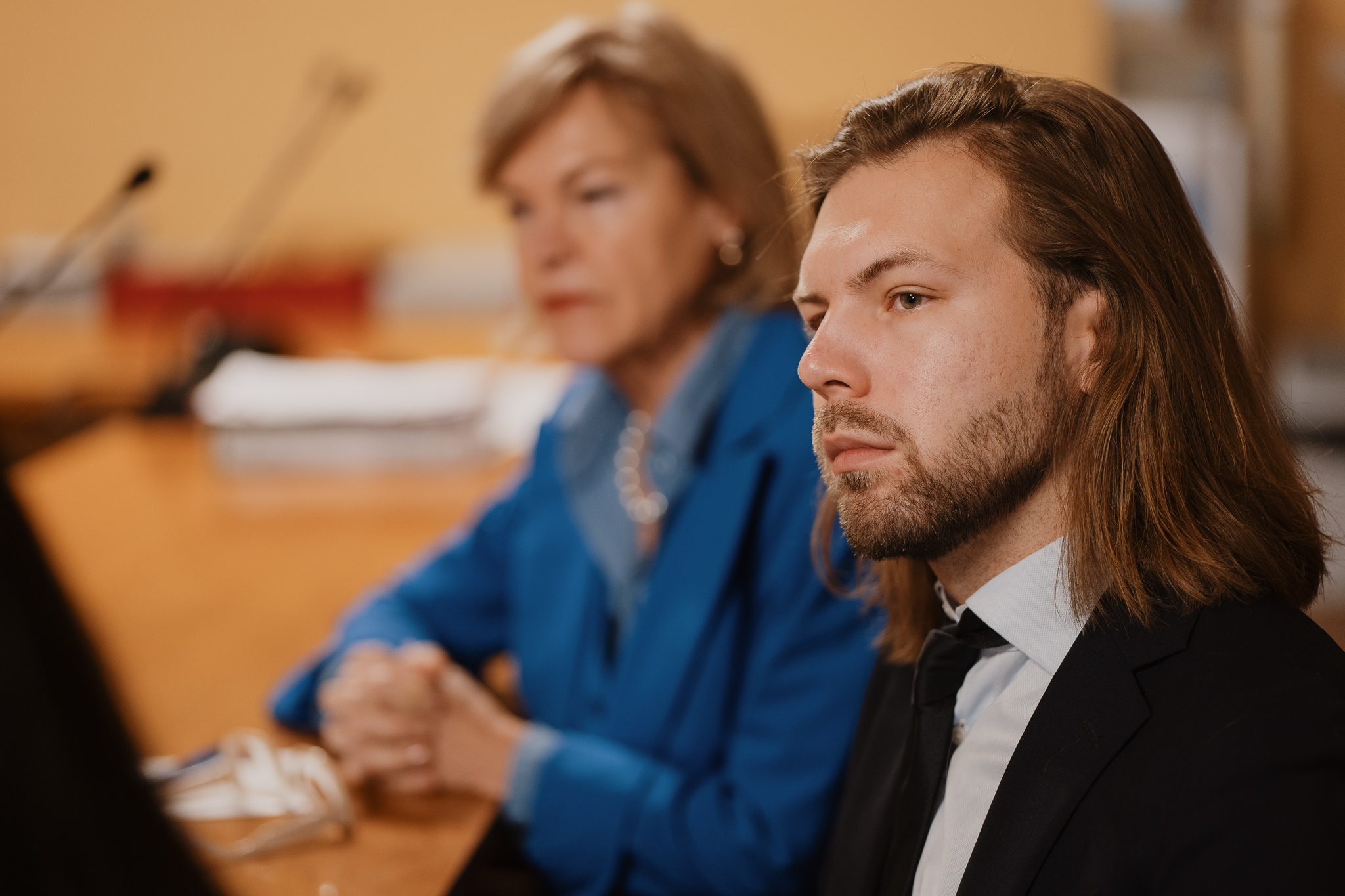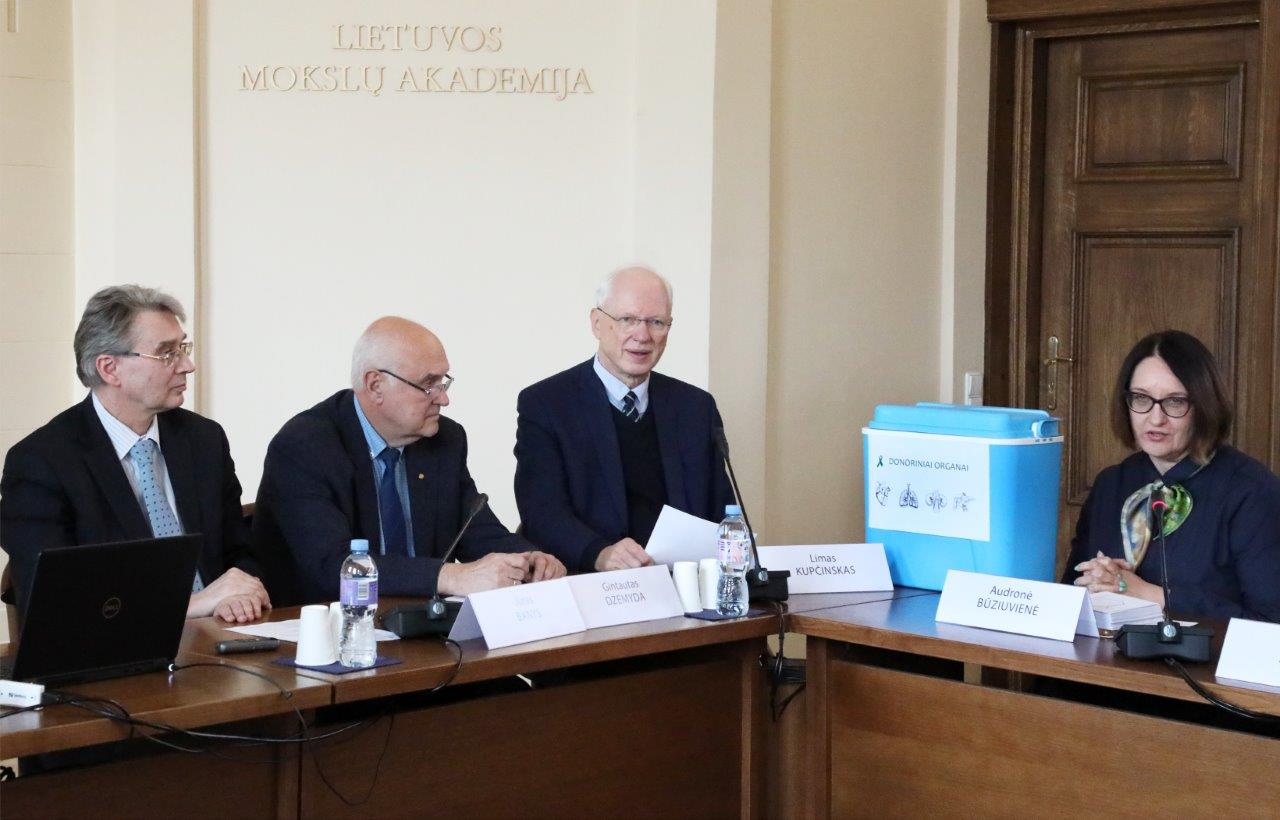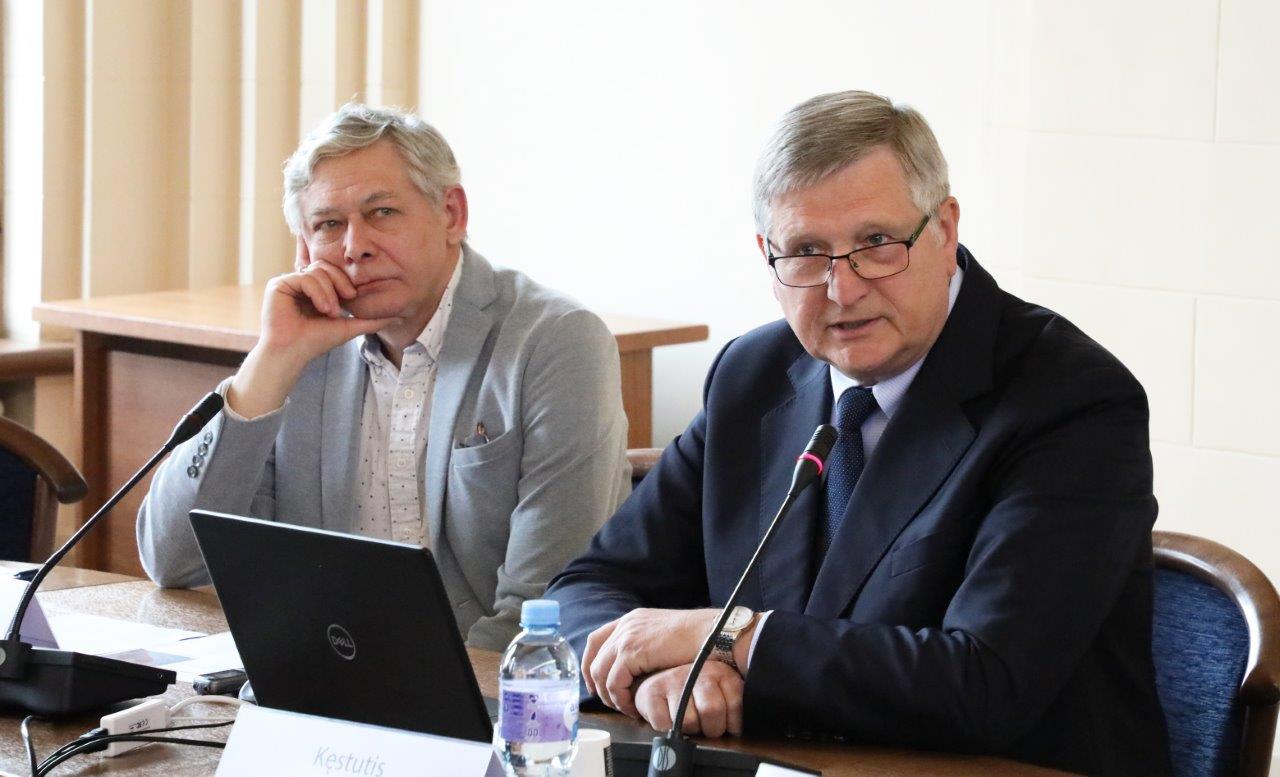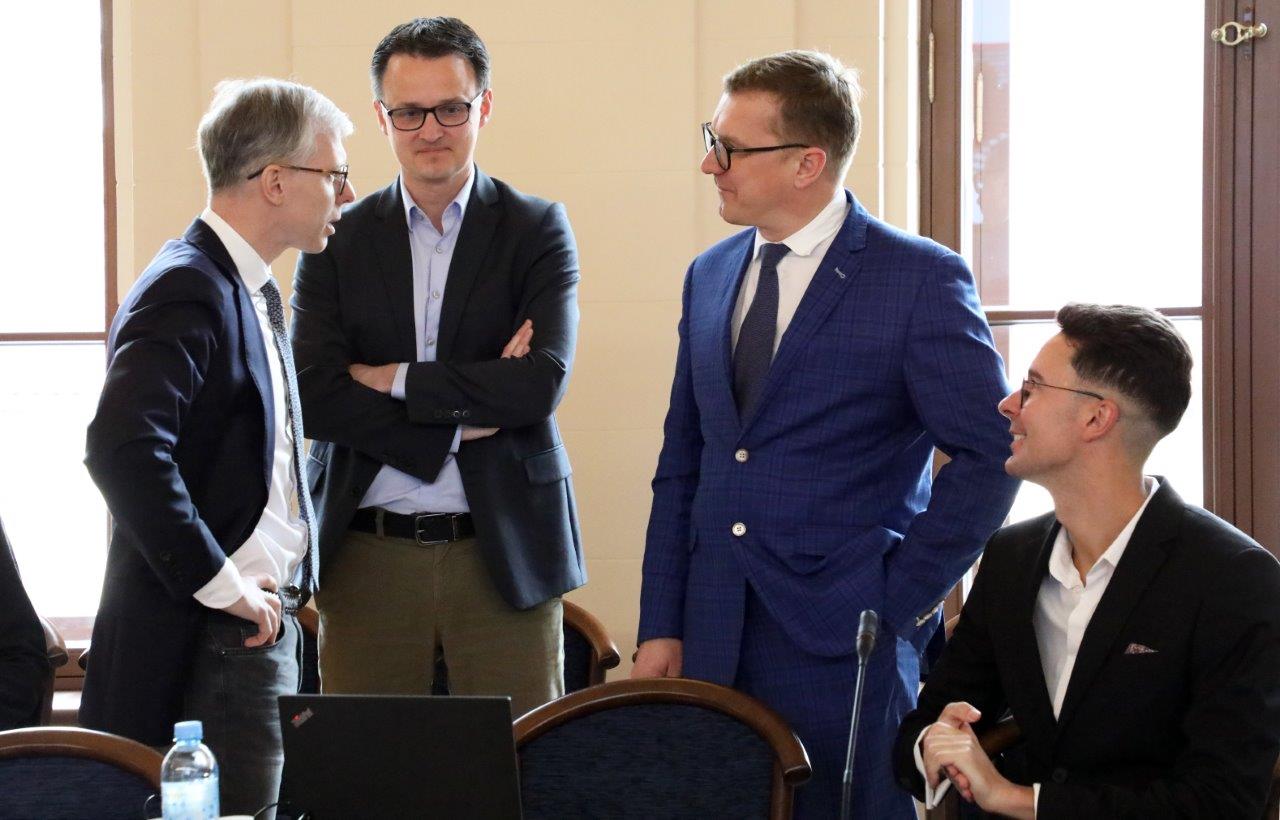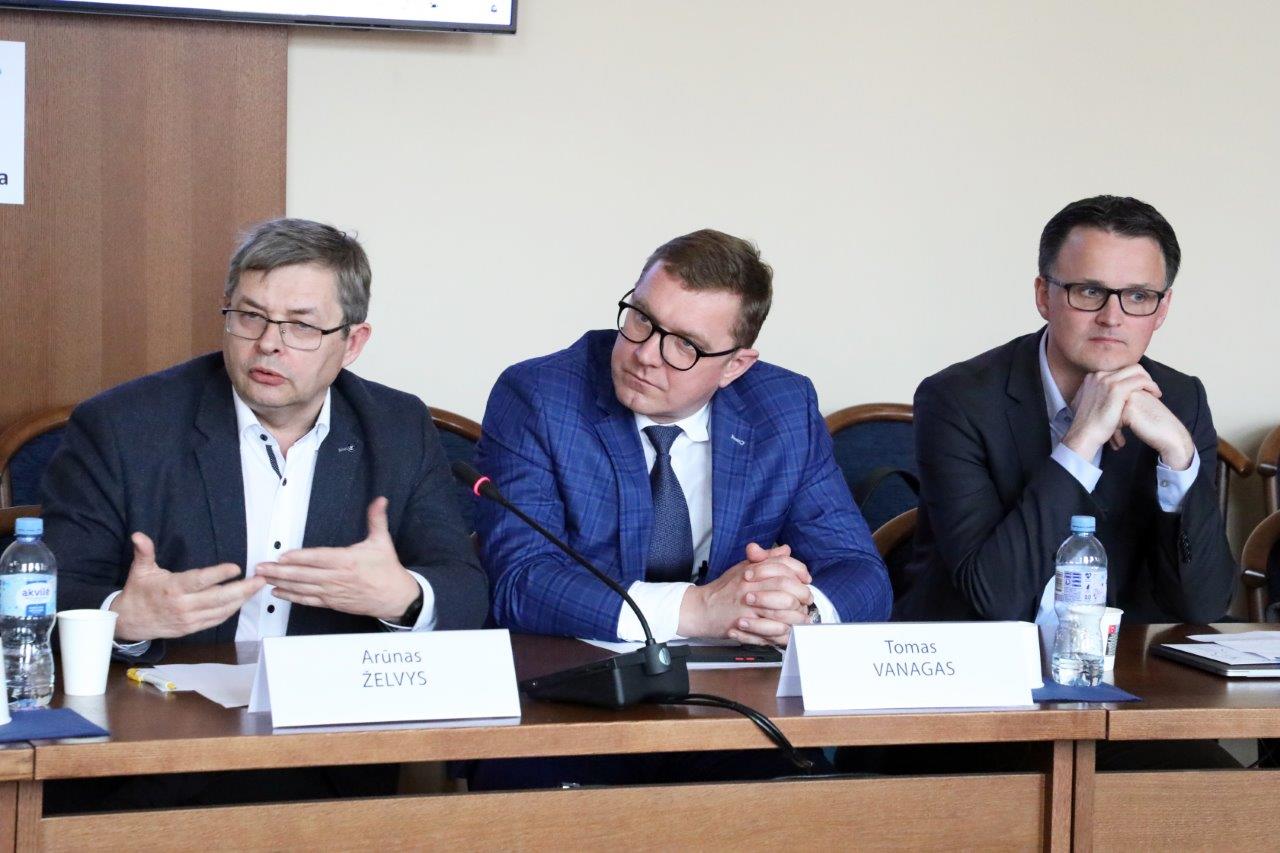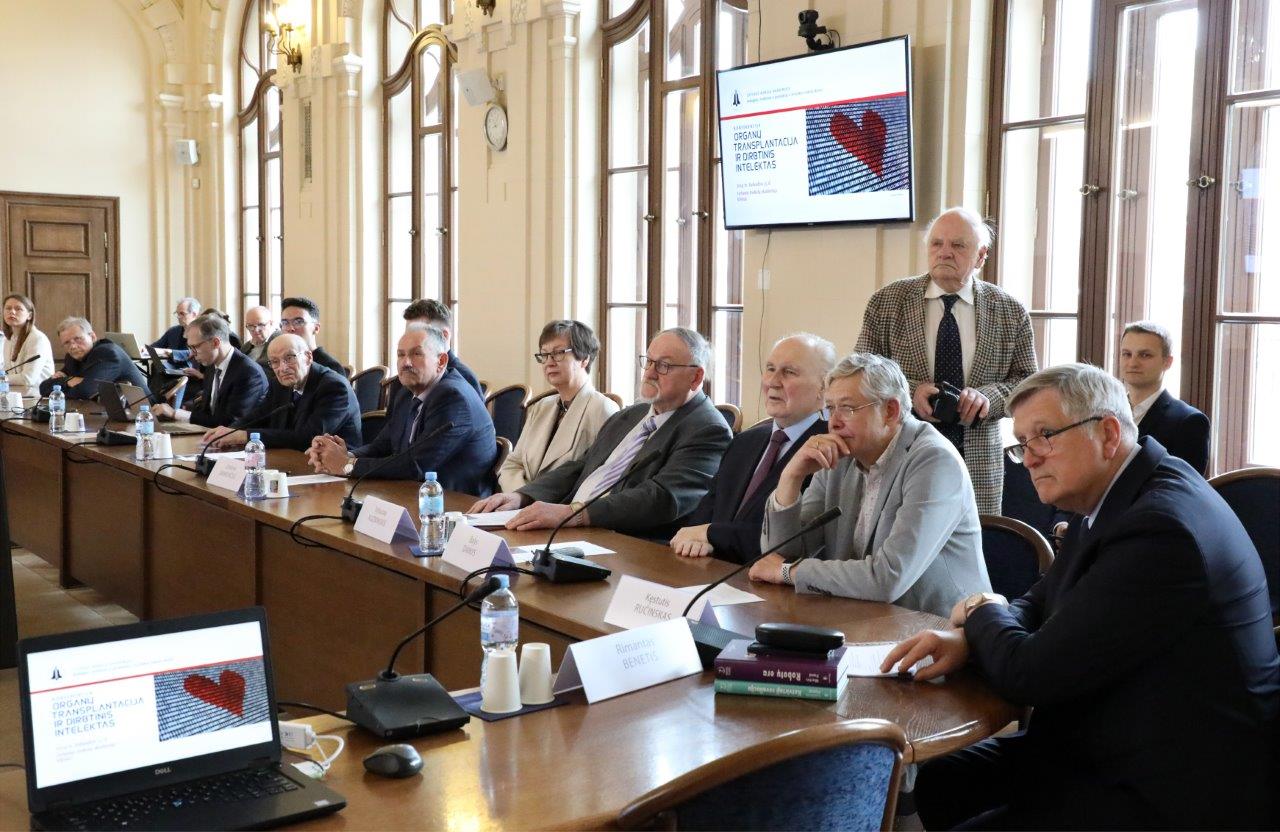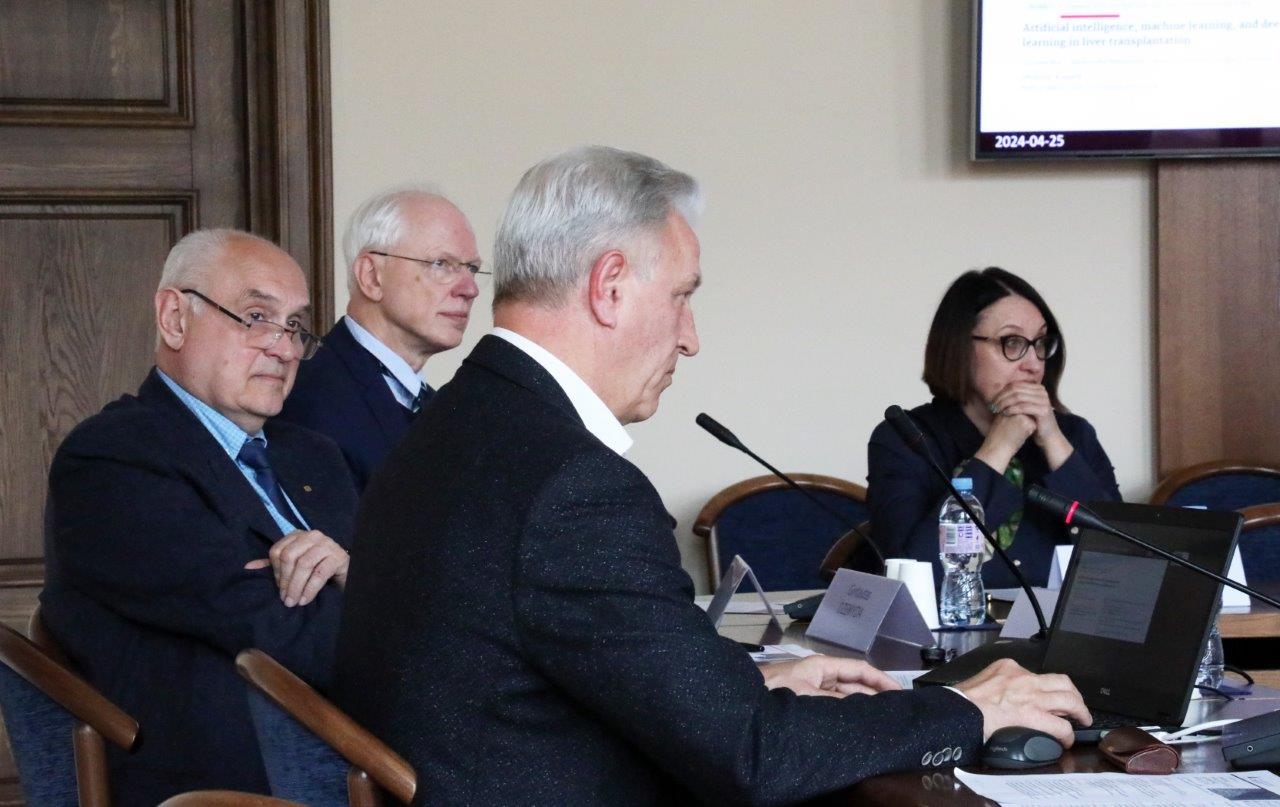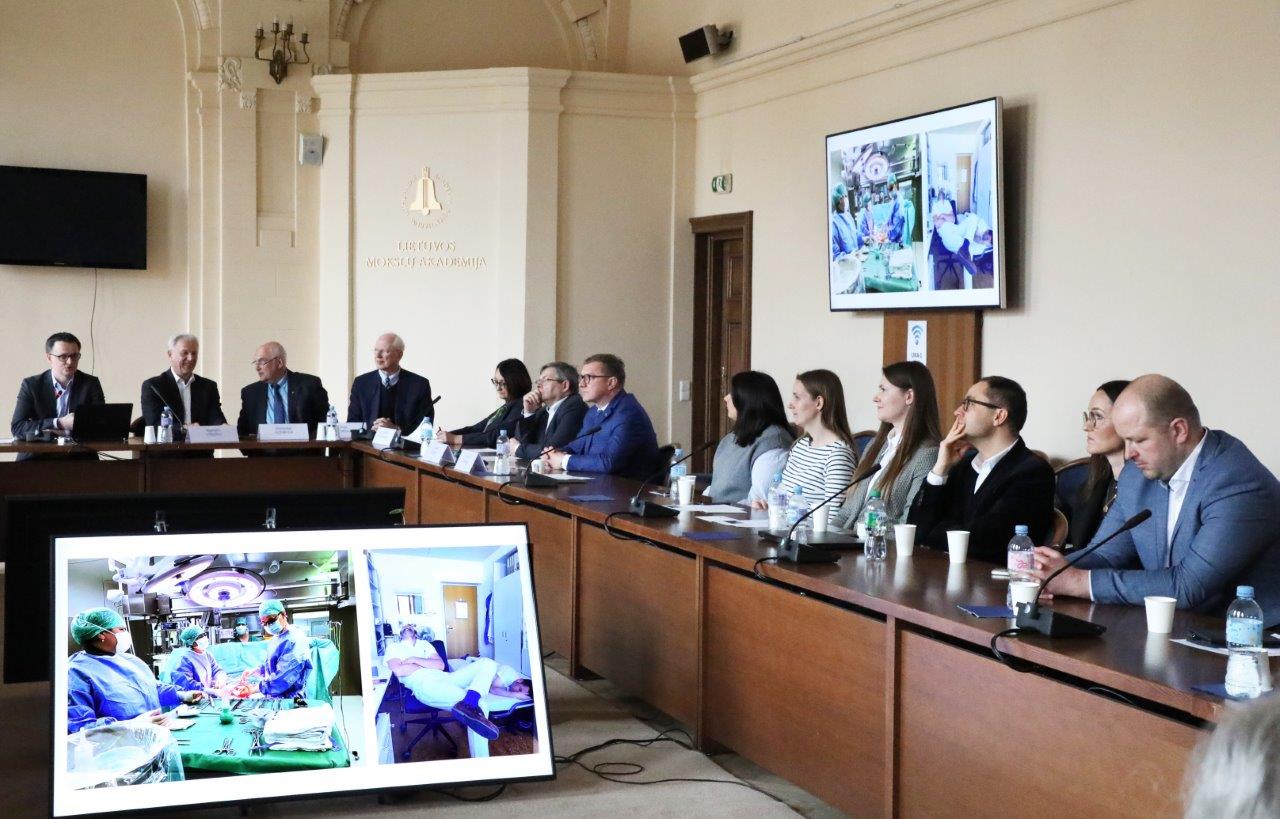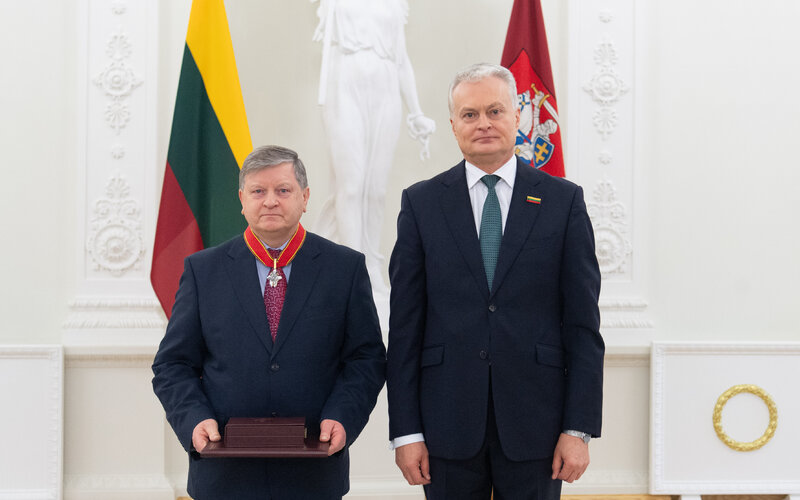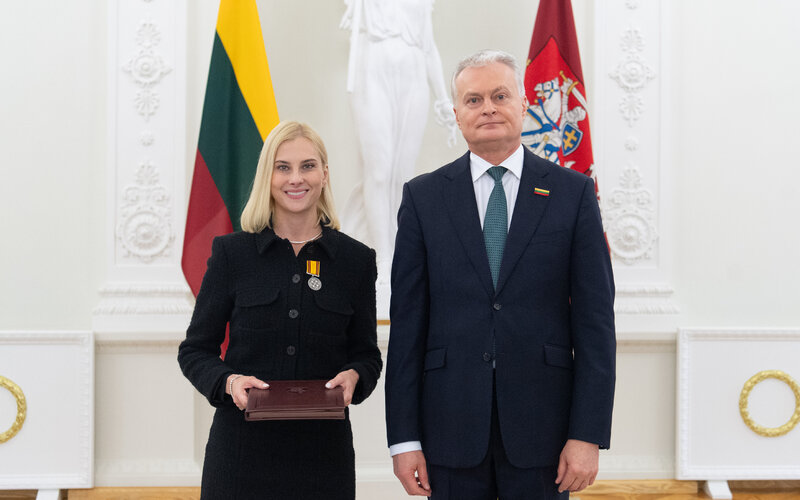Young Academy
- ENG
- Young Academy
- Activity of the Young Academy
Activity of the Young Academy
The International Conference ‘The Young Scientists For Advance Of Agriculture’
The Young Academy of the Department of Agricultural and Forestry Sciences of the Lithuanian Academy of Sciences organizes the traditional 14th international conference of young scientists ‘The Young Scientists For Advance Of Agriculture’ AGRISCI2025, which purpose is to bring together young scientists working in agronomy, agrobiology and agroecology, horticulture, forestry, veterinary medicine, agricultural engineering, food safety and quality, agrarian economy and rural sociology scientific fields and directions, and to promote their cooperation and dissemination of research results.
The conference will take place on November 26, 2025, at the Lithuanian Academy of Sciences (Gedimino avenue 3, Vilnius).
Young scientists, doctoral students and researchers are invited to participate. Conference participants register by filling out the registration form and submitting a one-page (300-word) abstract on the AGRISCI2025 Abstracts submission form by October 31th, 2025.
Official conference website 14th International Conference of Young Scientists "The young scientists for the advance of agriculture"
European Young Academies Meet in Bern to Advance Science Policy Dialogue
The Young Academy of the Lithuanian Academy of Sciences (LMAJA, Lietuvos mokslų akademijos Jaunoji akademija), together with representatives from over twenty national young academies across Europe, participated in the annual meeting of the European National Young Academies (ENYA), held on 5–6 June 2025 in Bern, Switzerland. The event was hosted by the Swiss Young Academy. LMAJA was represented by Dr Rūta Ubarevičienė, the chair, and Assoc. Prof. Dr Arvydas Rimkus, a member of the Technical Sciences Section.
Dr Rūta Ubarevičienė and Assoc. Prof. Dr Arvydas Rimkus, representatives of LMAJA.
The main objective of the meeting was to strengthen collaboration among national young academies in Europe, foster international partnerships, and emphasise the importance of science diplomacy in addressing such key issues as academic freedom, evidence-based policymaking, and the inclusion of researchers in decision-making processes. Special attention was given to the role of early- and mid-career researchers in shaping science policy and in building an open, inclusive, and cooperation-based scientific ecosystem in Europe. The two-day programme included discussions, practical workshops, and interactive sessions focused on science communication, protection of academic freedom, the science-policy interface, and models of international cooperation.
Moment from ENYA Annual Meeting 2025.
The Lithuanian representatives, Dr Rūta Ubarevičienė and Assoc. Prof. Dr Arvydas Rimkus, participated in a session dedicated to science communication, where they explored how scientists can better engage with the public, enhance the accessibility of science, build trust, and contribute to an evidence-informed public discourse. This topic is closely aligned with LMAJA’s mission to strengthen science-based dialogue in Lithuania. The meeting also initiated the development of a joint position among European young academies on key science policy issues. Discussions covered potential formats for future collaboration, including the creation of thematic working groups and the preparation of joint statements and position papers to ensure a coordinated and visible presence of young academies in the European political and academic spheres.
Rūta Ubarevičienė, chair of LMAJA, with Oskars Teikmanis (left), chair of the Latvian Association of Young Researchers, and Toomas Vaimann, president of the Estonian Young Academy of Sciences.
The Young Academy of the Lithuanian Academy of Sciences is actively engaged in these processes, contributing to the development of shared content and strategic direction. Participation in high-level international meetings not only reinforces inter-institutional cooperation but also ensures that European science policy trends are consistently reflected and implemented in LMAJA’s national activities.
Dr Arvydas Rimkus, member of the Young Academy of the Lithuanian Academy of Sciences
Photos by Rūta Ubarevičienė, Arvydas Rimkus, and the Swiss Young Academy
Meeting of the Representatives of the Nordic and Baltic Young Academies in Tallinn
Five members of the Young Academy of the Lithuanian Academy of Sciences (LMAJA, Lietuvos mokslų akademijos Jaunoji akademija) – Dr Rūta Ubarevičienė, chair, Dr Julius Vengelis, vice-chair, and members Dr Vilma Naujokienė, Dr Ignas Kalpokas, and Dr Tadas Kaliatka – participated in the meeting of the Nordic and Baltic Young Academies in Tallinn, Estonia on 8–9 May. The event, which focused on current scientific topics, brought together representatives from all three Baltic countries and four Nordic countries (Denmark, Norway, Finland, and Sweden).
The meeting opened with the young academy of each country presenting its structure and activities. The representatives of the LMAJA (its presentation was delivered by the chair Dr Rūta Ubarevičienė) shared their positive experiences related to the working groups established last year and the ongoing initiatives being implemented this year. This series of presentations allowed the members of the LMAJA to establish connections with colleagues from other countries and gain new ideas for their work.
The main programme of this year’s meeting focused on two themes. The first theme was ‘Academic Career Pathways from the Perspective of Early-Career Researchers’. Presentations were followed by small group discussions on the challenges faced by early-career researchers pursuing academic careers. Dr Rūta Ubarevičienė and Dr Tadas Kaliatka presented the talk ‘Organising Academic Careers: Challenges and Opportunities for Early-Career Researchers in Lithuania’, in which they discussed the challenges related to attracting doctoral students and generational differences in research practices in Lithuania. Throughout the presentations, the importance of consistent funding and the academic freedom of universities and all higher education institutions were emphasised as essential for fostering highly qualified, critically thinking researchers.
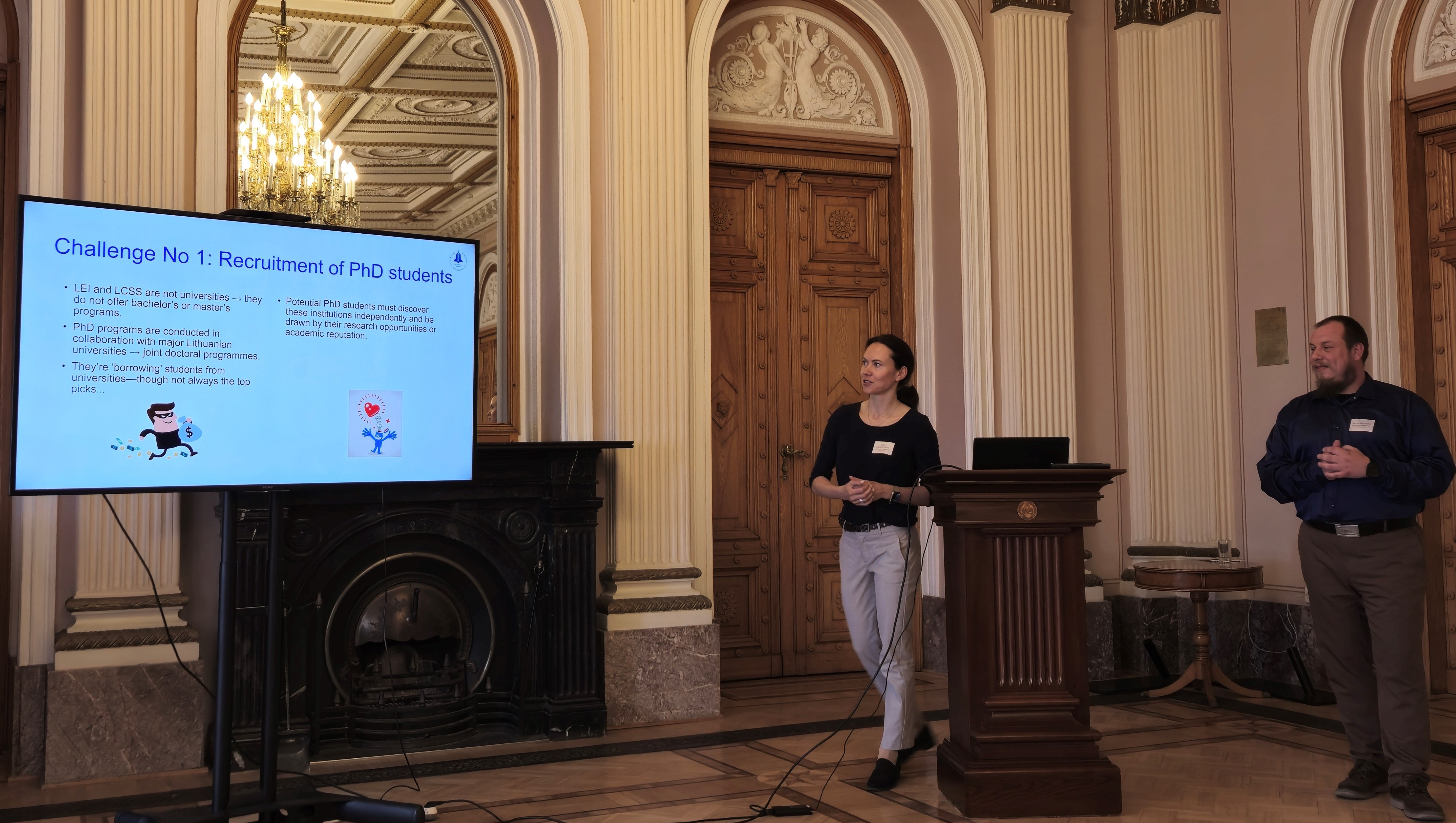
Dr Rūta Ubarevičienė and Dr Tadas Kaliatka presenting on the challenges and opportunities of academic careers in Lithuania.
The second theme of the meeting was ‘Ethics and Artificial Intelligence’. The keynote address was delivered by Prof. Margit Sutrop, a philosopher, professor at the University of Tartu, and member of the Estonian Parliament, who spoke about the ethical aspects of AI development, particularly regarding the consensus on moral values in different cultural contexts. Subsequent presentations also discussed the ethical implications of AI applications in academic work. Dr Ignas Kalpokas, a member of the LMAJA, gave a talk ‘Synthetic Dreams: Exploring the Bias in Generative Artificial Intelligence’, in which he discussed the problem of AI bias and the associated risks of its development.
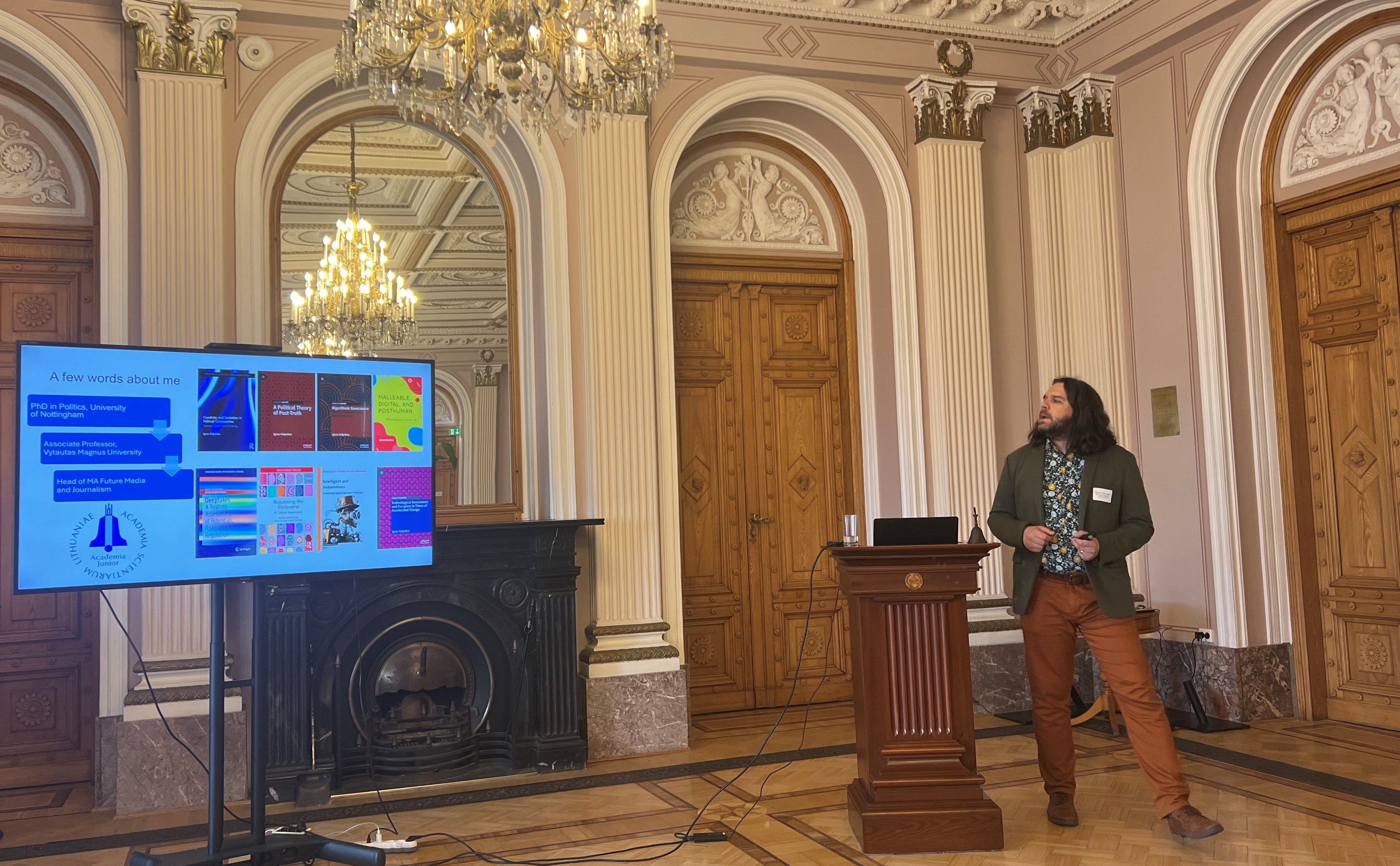
Dr Ignas Kalpokas presenting on the issue of AI bias.
In the final part of the meeting, members of the Young Academy of the Lithuanian Academy of Sciences engaged in discussions with colleagues from other young academies about the next annual meeting, which will be held in Riga, Latvia in 2026. Participation in this event strengthened the connections between the Nordic and Baltic young academies and offered the members of the LMAJA ideas for further collaboration and valuable experience and knowledge.
In the title photo, delegation of the LMAJA at the meeting of Nordic and Baltic young academies in Tallinn, Estonia. Left to right, Dr Ignas Kalpokas, Dr Tadas Kaliatka, Dr Rūta Ubarevičienė, chair, Dr Julius Vengelis, vice-chair, and Dr Vilma Naujokienė
Dr Julius Vengelis, Vice-Chair of the Young Academy of the Lithuanian Academy of Sciences (LMAJA)
Photographs by Dr Rūta Ubarevičienė and Dr Julius Vengelis
Alumnus of the Young Academy of the Lithuanian Academy of Sciences Publishes Multiphoton 3D Lithography Guide in ‘Nature Reviews Methods Primers'
The Laser Nanophotonics Group (Laser Research Center, Faculty of Physics,Vilnius University), led by Prof. Mangirdas Malinauskas, an alumnus of the Young Academy of the Lithuanian Academy of Sciences, has published an educational article on the theoretical and practical fundamentals of laser-based 3D multiphoton lithography and applied methodologies. This guide has been published in the prestigious journal Nature Reviews Methods Primers (IF=50.1) in collaboration with Prof. Shoji Maruo (Yokohama University), the pioneer of two-photon polymerisation, the esteemed Prof. Georg von Freyman (Kaiserslautern University), and the remarkable Prof. Julia Greer (California Institute of Technology). The authors also include Dr Edvinas Skliutas (Faculty of Physics, alumnus of the Young Academy) and Dr Greta Merkininkaitė (Faculty of Chemistry and Geosciences, Vilnius University). The combined expertise of all authors in the field exceeds 100 years.
This introductory review covers best experimental practices, widely used analysis methods, relevant applications, and future trends. Such a publication provides all the necessary information for evaluating, adapting, and implementing the most advanced laser 3D printing method in a laboratory environment. This is expected to further accelerate the development of this technology in scientific laboratories and its adoption in high-tech industries.
Currently, multiphoton 3D polymerisation is used by several Lithuanian companies, including Femtika, Workshop of Photonics, Vital 3D, and Elas. The equipment for this process is assembled using components from such manufacturers as Light Conversion, Ekspla, Optogama, Standa, Altechna, and others.
Students at the bachelor’s, master’s, and doctoral levels at the Faculty of Physics at Vilnius University can attend lectures and conduct practical work on this topic in the laboratory.
Multiphoton 3D Lithography: Nat Rev Methods Primers 5, 15 (2025)
https://doi.org/10.1038/s43586-025-00386-y
Visual Summary of the Guide:
Multiphoton 3D Lithography | Nature Reviews Methods Primers
Freely available online document:
https://rdcu.be/edoxN
Dr Julius Vengelis, Vice Chair of the Young Academy of the Lithuanian Academy of Sciences
Prof. Mangirdas Malinauskas, alumnus of the Young Academy
International knowledge transfer seminar ‘Alternative Plant Protection Measures for Strawberries'
On 6 March 2025, Thursday, 10:00, an international knowledge transfer seminar ‘Alternative Plant Protection Measures for Strawberries' will be held at the Institute of Horticulture of the Lithuanian Research Centre of Agriculture and Forestry at Kauno St. 30, Babtai, Kaunas district.
Registration is open until 1 March 2025:
https://forms.gle/1GGmkw1spKCmkSkE7
LITHUANIAN RESEARCH CENTRE FOR AGRICULTURE AND FORESTRY
YOUNG ACADEMY OF THE LITHUANIAN ACADEMY OF SCIENCES
Presentation of Lithuanian Quantum Technology Guidelines at the Lithuanian Academy of Sciences
On 28 February, Lithuanian Quantum Technology Guidelines were presented at the Lithuanian Academy of Sciences. The event was organised by the Lithuanian Quantum Technology Association (QUANTUM Lithuania), the Research Council of Lithuania, and the Young Academy of the Lithuanian Academy of Sciences (LMAJA). Together with the quantum technology initiative group, the Lithuanian Quantum Technology Association prepared and publicised Lithuanian Quantum Technology Guidelines, a document that discusses the state of quantum technology development worldwide and in Lithuania and provides recommendations for breakthrough developments. Various academic, business, and public sector organisations, which actively contributed to the preparation of the guidelines, also included the Lithuanian Academy of Sciences, which was represented by Prof. Dr Darius Abramavičius, a full member of the Academy, as well as Prof. Dr Mantas Šimėnas and Assoc. Prof. Dr Julius Vengelis, members of the Young Academy.
Following the opening address by Prof. Dr Gintaras Valinčius, chair of the Research Council of Lithuania, several invited international guests gave presentations on the perspectives of quantum technologies in the European Union and the situation in other countries: Pascal Maillot, acting head of the Quantum Technologies unit at DG CNECT, European Commission (remotely), Prof. Dr Jukka Pekola, director of InstituteQ (remotely), Raimundas Tuminauskas, head of Network and Service Infrastructure Department at the Poznań Supercomputing and Networking Center (PSNC, Poland), Robby Toole, who represented QuantumBasel, a commercial quantum technology and AI competence centre, and Maricela Muñoz, director of external affairs at GESDA. Concluding the event, Prof. Dr Mantas Šimėnas presented the Lithuanian Quantum Technology Guidelines, while Paulius Petrauskas, an advisor to the Minister of Economy and Innovation, delivered the final remarks. During the post-event discussions, the necessity of working out a quantum technology development strategy for Lithuania, aiming to unite the representatives of the academic community, the public sector, and the private sector towards a common goal, was emphasised.
Lithuanian Quantum Technologies Agenda
Dr Julius Vengelis, Vice chairperson of LAS Young Academy
Photo Dr Domas Jokubauskis
International Conference ‘One Health: An Integrated Approach to Zoonoses’: An Overview of the Most Relevant Infectious Diseases and How to Tackle Them
An international scientific-practical conference ‘One Health: An Integrated Approach to Zoonoses’ took place at the Lithuanian University of Health Sciences (LSMU) on 10 December 2024. The event featured presentations on zoonotic diseases by experts in human and veterinary medicine and representatives of public health and governmental institutions from Lithuania and abroad. The conference attracted over three hundred live and remote participants.

International Scientific and Practical Conference ‘One Health: An Integrated Approach to Zoonoses’.
Photo Miglė Verikaitė
The first part of the event focused on vector-borne (especially tick-borne) zoonotic viral diseases (Lyme disease, tick-borne encephalitis, and other flavivirus diseases), which are becoming increasingly important in Lithuania. A guest speaker from the USA – Prof. Dr Kevin Dieckhaus from the University of Connecticut School of Medicine – gave a presentation on the epidemiology of Lyme disease and the impact of climate change on the spread of the disease, which not only covered the history of Lyme disease in the USA but also changes in the tick population caused by climate change and other factors, and the impact of these changes on the epidemiology of the disease. Much attention was paid to tick-borne encephalitis. Dr Vytautas Griška (Clinic of Infectious Diseases, LSMU) reviewed the results of the study into the mechanisms of virus-induced lesions in the brain, Prof. Dr Arūnas Stankevičius (Laboratory of Immunology, Department of Anatomy and Physiology, LSMU Academy of Veterinary Medicine) presented data on the prevalence of the virus in Lithuanian wild rodents and dogs, and Austėja Žilinskaitė, a student of the LSMU Academy of Veterinary Medicine, spoke of the dynamics of the virus in the Lithuanian horse population.
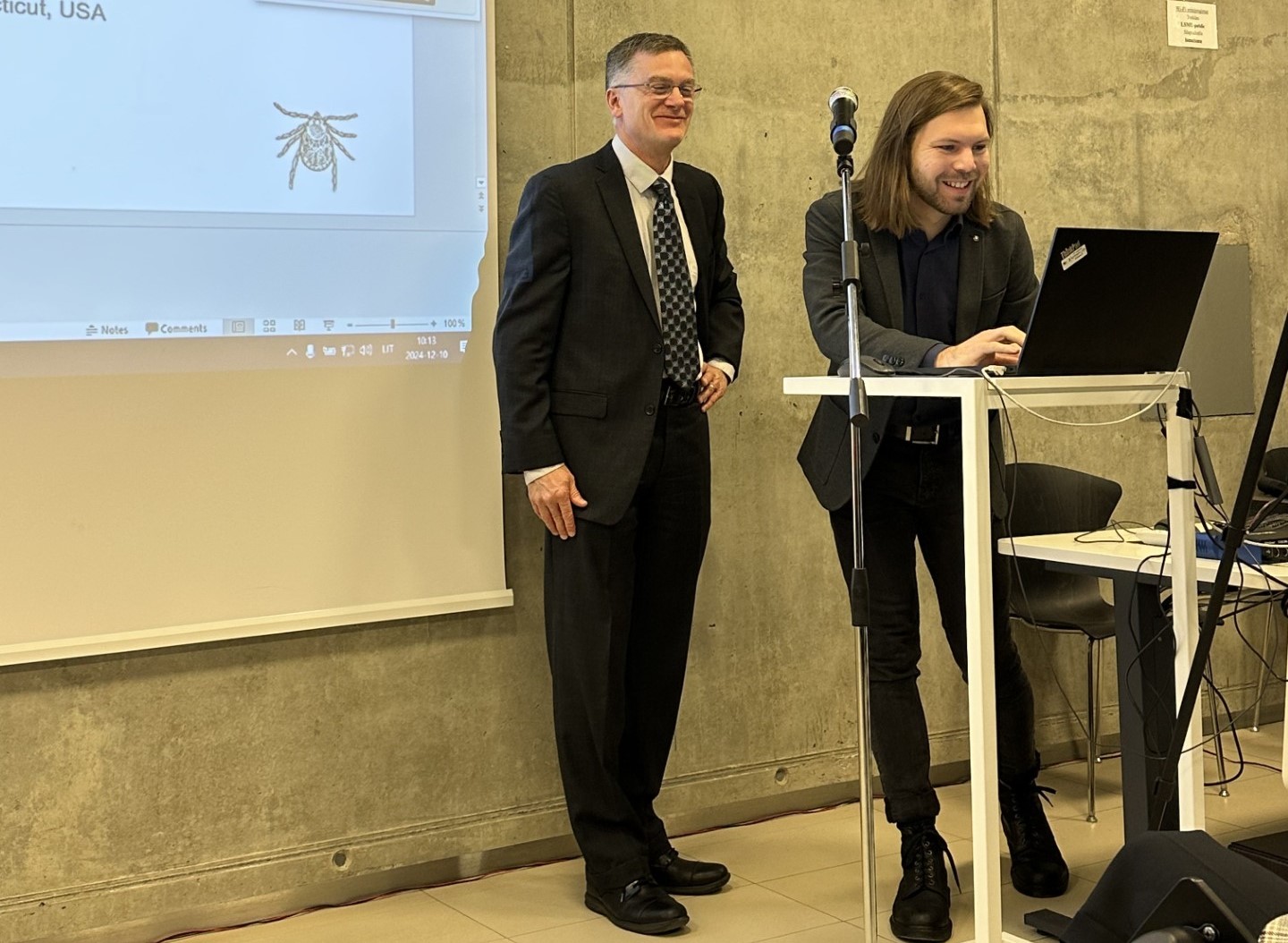
Conference speakers: left, Prof. Dr Kevin Dieckhaus and Dr Juozas Grigas, a member of the Young Academy of the Lithuanian Academy of Sciences.
Photo Žaneta Štreimikytė-Mockeliūnė
The second part of the event was devoted to a discussion of various zoonotic diseases and related issues in Lithuania and abroad and to the dynamics and importance of zoonotic diseases in the context of the ‘One Health’ concept. The series of presentations was opened by Dr Dainius Zienius (Department of Veterinary Pathobiology, LSMU), who gave an overview of the history and mechanisms of the emergence of infectious diseases concerning both animals and humans and outlined their future importance. Dr Juozas Grigas (Young Academy of the Lithuanian Academy of Sciences, Institute of Microbiology and Virology, LSMU) spoke about the research on the prevention and treatment against viral zoonotic pathogens such as Hepatitis E and SARS-CoV-2 viruses, which are of relevance in Lithuania and the world. Dr Jūratė Buitkuvienė and Dr Česlova Butrimaitė-Ambrozevičienė from the National Institute of Food and Veterinary Risk Assessment presented the institute's activities related to zoonotic disease surveillance programmes and epidemiological analysis in Lithuania. Dr Jurgita Aksomaitienė (Department of Food Safety and Quality, LSMU) discussed the application of whole-genome sequencing for the characterisation of foodborne bacteria. The series of presentations was closed by Paulius Gradeckas (Faculty of Public Health, LSMU), who gave a wider overview of the place of zoonotic agents in the context of infectious diseases and talked about the governmental preparedness and management programmes aimed at potential outbreaks of infectious diseases.

Dr Arnoldas Pautienius, chair of the Conference Organising Committee.
Photo Miglė Verikaitė
Throughout the event, presentations were followed by questions from the audience and discussions on zoonotic diseases. Participants from different professional backgrounds had the opportunity to discuss zoonotic disease issues relevant to their work with the conference experts and speakers. Therefore, the conference not only provided members of the general public and medical and health representatives with the most up-to-date information on zoonotic diseases prevalent in Lithuania and the world but also offered them the opportunity to receive answers and specific recommendations from experts working in this field.

International scientific-practical conference ‘One Health: An Integrated Approach to Zoonoses’.
Photo Miglė Verikaitė
Prepared by Dr Juozas Grigas, a member of the Young Academy of the Lithuanian Academy of Sciences
Representatives of the Lithuanian Academy of Sciences at the BASNET Forum International Meeting
Representatives of the Lithuanian Academy of Sciences – President Prof. Jūras Banys, Prof. Artūras Žukauskas, Dr Juozas Grigas (the author of these lines), and Prof. Baiba Rivža, a foreign member of the Lithuanian Academy of Sciences, took part in the international meeting ‘From Challenges to Solutions: A Systemic Solution to the Issues in Early-Career Researchers in the Baltic Countries’, which was held at Vilnius University on November 27. The meeting aimed to draw the attention of representatives of academic, scientific, and governmental institutions in the Baltic countries to the challenges facing early-career researchers. Possible steps in managing these challenges were discussed. BASNET Forum is a regional association of women scientists of the Baltic countries.
At this international meeting, presentations were given by the representatives of the Committee on Education and Science of the Seimas of the Republic of Lithuania, the Research Council of Lithuania, as well as of academic and research institutions from Lithuania, Latvia, and Estonia. The participants shared their experiences on issues related to early-career researchers, discussed problems and their possible solutions. Prof. Jūras Banys and Dr Grigas took part in the roundtable discussion ‘Priorities under the Law, Funding, Resource Allocation, and Cooperation with Business’; Dr Grigas was also invited to the discussion ‘Work Culture, the Balance of Work and Personal Life, and Mental Health’. Recommendations for stakeholders were drawn up on the basis of the issues raised during the presentations and discussions.
Prepared by Dr Juozas Grigas, Member of the Young Academy of the Lithuanian Academy of Sciences
Photography Ugnius Bagdonavičius
A Meeting of Lithuanian and Ukrainian Psychotraumatologists
The conference "Psychology and the War in Ukraine" took place at the Lithuanian Academy of Sciences on 29 November 2024. It was attended by Prof. Evaldas Kazlauskas, a member of the Lithuanian Academy of Sciences, Assoc. Prof. Dr Paulina Želvienė, a member of the Young Academy, and guests from Ukraine: Dr Iryna Frankova and Assoc. Prof. Dr Oxana Bayer. The participants were welcomed by Prof. Jūras Banys, President of the Lithuanian Academy of Sciences, and Prof. Evaldas Kazlauskas, head of the Centre for Psychotraumatology of Vilnius University. Four papers were given at the conference.
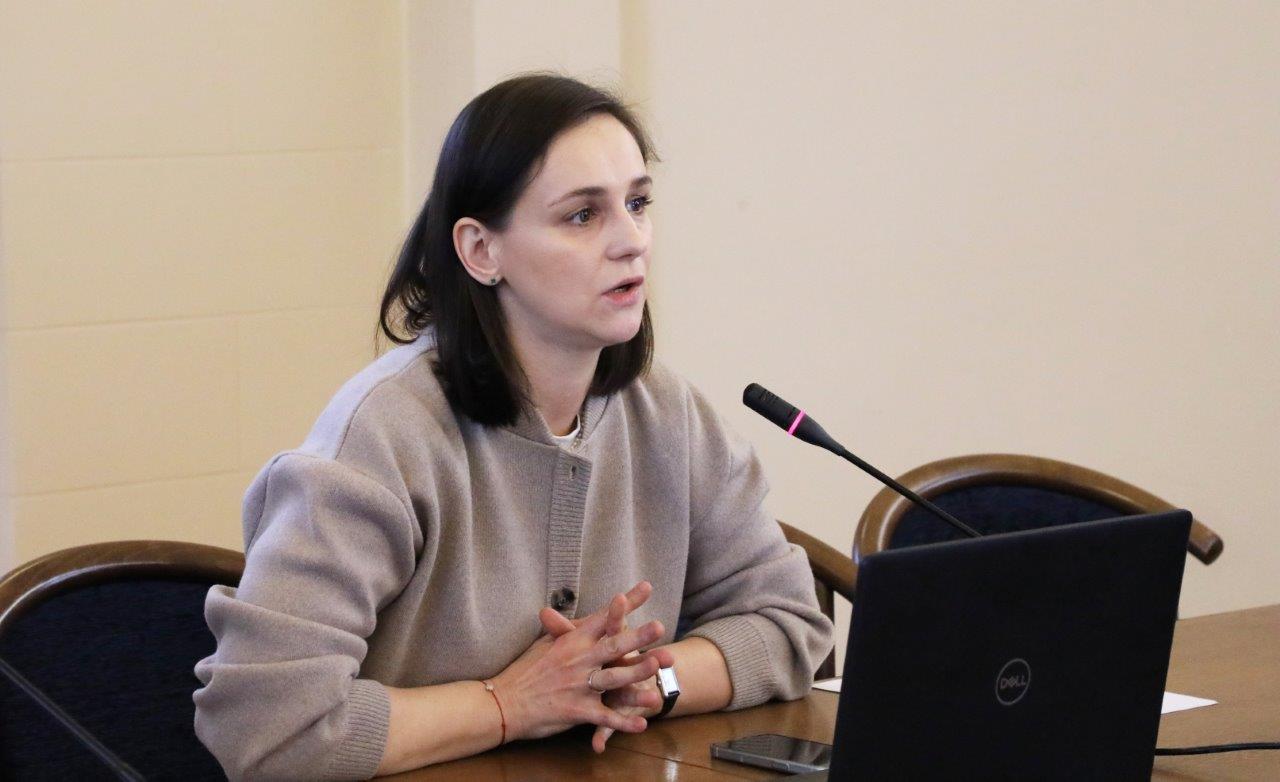
Assoc. Prof. Dr Paulina Želvienė.
Assoc. Prof. Dr Paulina Želvienė of the Centre for Psychotraumatology, Vilnius University, spoke about psychotraumatology in Lithuania, active involvement in the work of the international psychotraumatology community, and assistance to Ukraine. Academician Evaldas Kazlauskas presented his paper ‘Application of Psychotraumatology Research in Providing Psychological Assistance’. One thing is to understand people’s responses to various traumatic events, and another, equally important aspect, is application of research results in developing psycho-social services and provision of assistance to the individuals suffering from traumas. The academician discussed the challenges in developing methods of recognition of the traumatic stress and psychotraumatological evaluation and their benefits to society. Many people experience various negative life events. The resources are limited, and it is impossible to help everyone. How to recognise the individuals who suffer the most? Various diagnostic evaluation tools are developed for this purpose. Another direction of psychotraumatology is searching for the ways of assistance through the use of advanced information technologies.
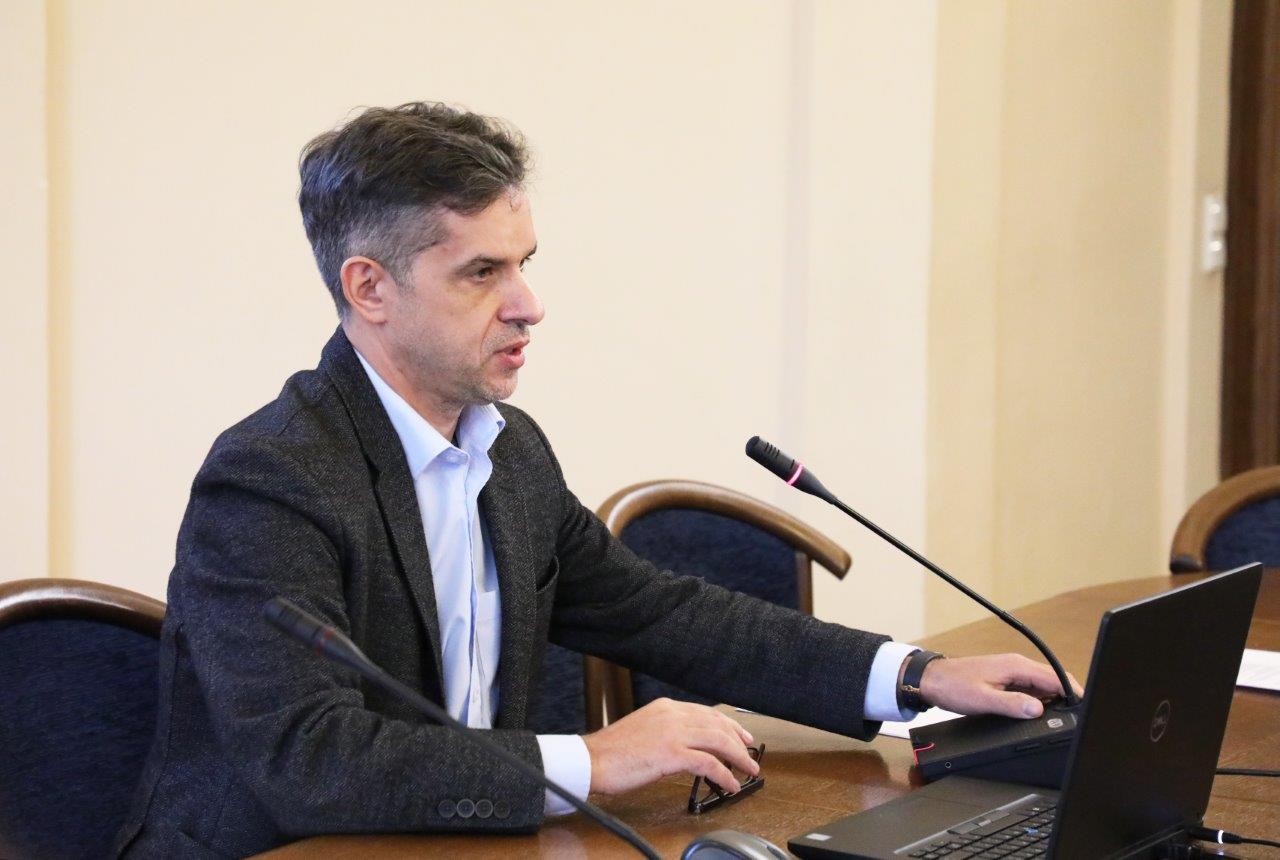
Prof. Evaldas Kazlauskas.
Prof. Kazlauskas said that ‘traditional assistance, when a person meets a psychologist, is important but no longer sufficient. In the case of the war in Ukraine, research shows that around 20 per cent of people may be suffering from an extremely strong traumatic stress. For this reason, we must search for new ways to help. One of these ways is application of advanced technologies, when a certain structural program is developed to be used by the patients, even remotely, when the involvement of psychologists is minimal’. Informing the public about the impact of traumatic experiences on mental health, specialist training on how to provide psychological health, and development of new health services were presented as important ways of dealing with difficulties arising from traumatic experiences.
Dr Iryna Frankova from the Free University (Vrije Universiteit) Amsterdam spoke about psycho-social interventions intended for improving mental health of the people who had left Ukraine for the countries of the European Union. Due to Russia’s full-scale war against Ukraine, the demand for psychological help has escalated, and that is why new innovative solutions are sought to reduce the psychological trauma and to rein in stress. Dr Frankova presented the experience of the large ‘U-Rise’ project – specialised programmes for people experiencing severe psychological distress. Psychologists and volunteers in Poland, Romania, and Slovakia were trained in the use of the specialised digital applications SH+ and PM+ and in the development of the competences necessary to provide assistance. These techniques reduce stress and help people react appropriately to highly stressful situations. Through innovative methods of assistance, around 150,000 people who left Ukraine for the countries of the European Union received psychological support as a result of this project.
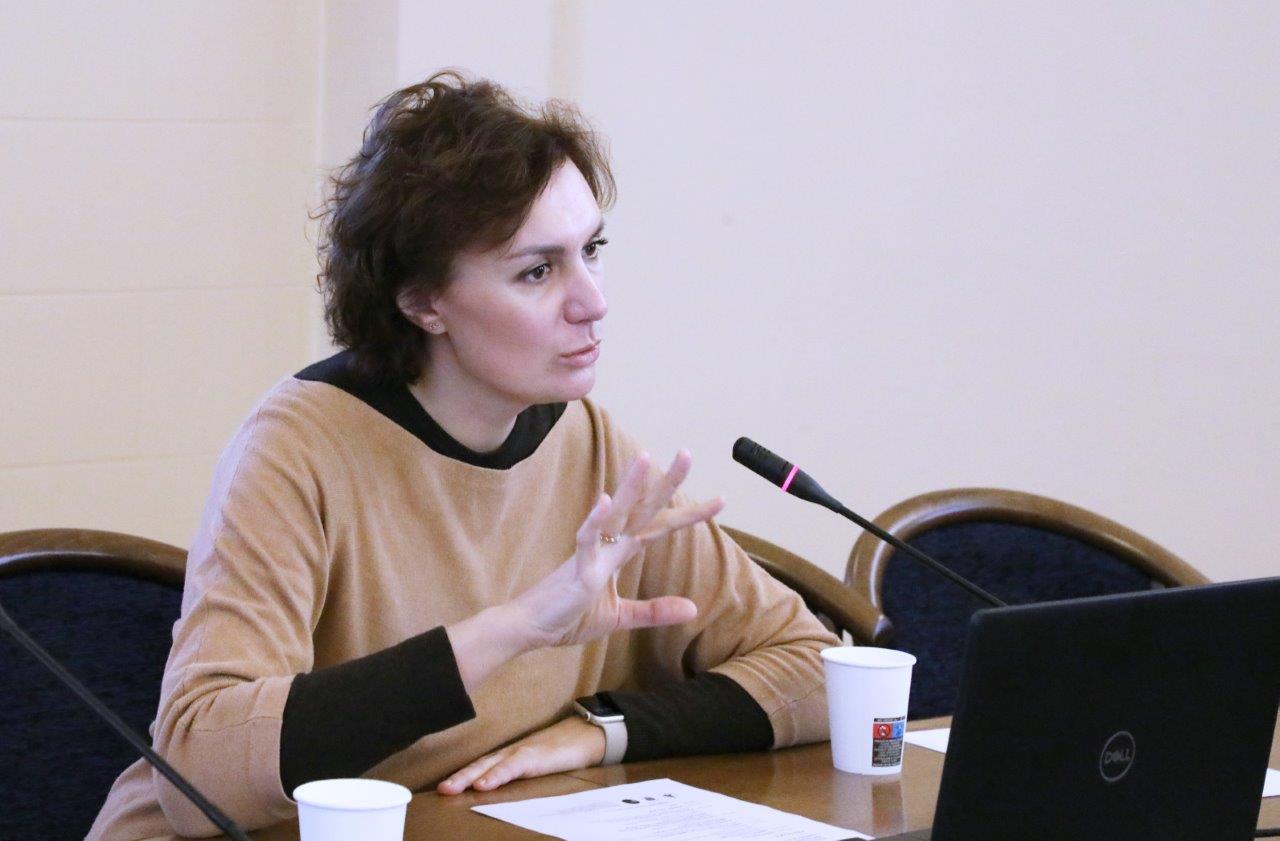
Dr Oxana Bayer.
The closing paper of the conference, ‘Psychological Research during the War in Ukraine’, was given by Dr Oxana Bayer from Alfred Nobel University (Dnipro, Ukraine). Her research interests include trauma and identity studies and the long-term consequences of Soviet rule in Ukraine. She began her presentation by outlining the research being carried out in Ukraine in the wake of Russia's large-scale invasion of Ukraine in 2022. These studies have been published in Ukrainian. Her study on the experiences of ethnically mixed Ukrainian-Russian families during the Russian invasion of Ukraine from the perspective of the female partners has attracted considerable interest. The war has a strong emotional impact on families and couples, especially when the partner ethnically identified as Russian before the war. Initial qualitative research results were obtained with 16 Ukrainian or Russian women from Ukraine, who were in mixed Ukrainian-Russian relationships at the time of research. In personal interviews, they talked about the pain of a possible family break-up, the tension between ethnic and political loyalties within the family, and the feelings of guilt and shame experienced by women of Russian origin. For instance, ethnic Russian women felt they had no moral right to feel dissatisfied, although they were willing to openly share their doubts and concerns with their Ukrainian partners. They therefore avoided the subject of the war in their formal conversations, or they had to break off contacts with relatives living in the Russian Federation.
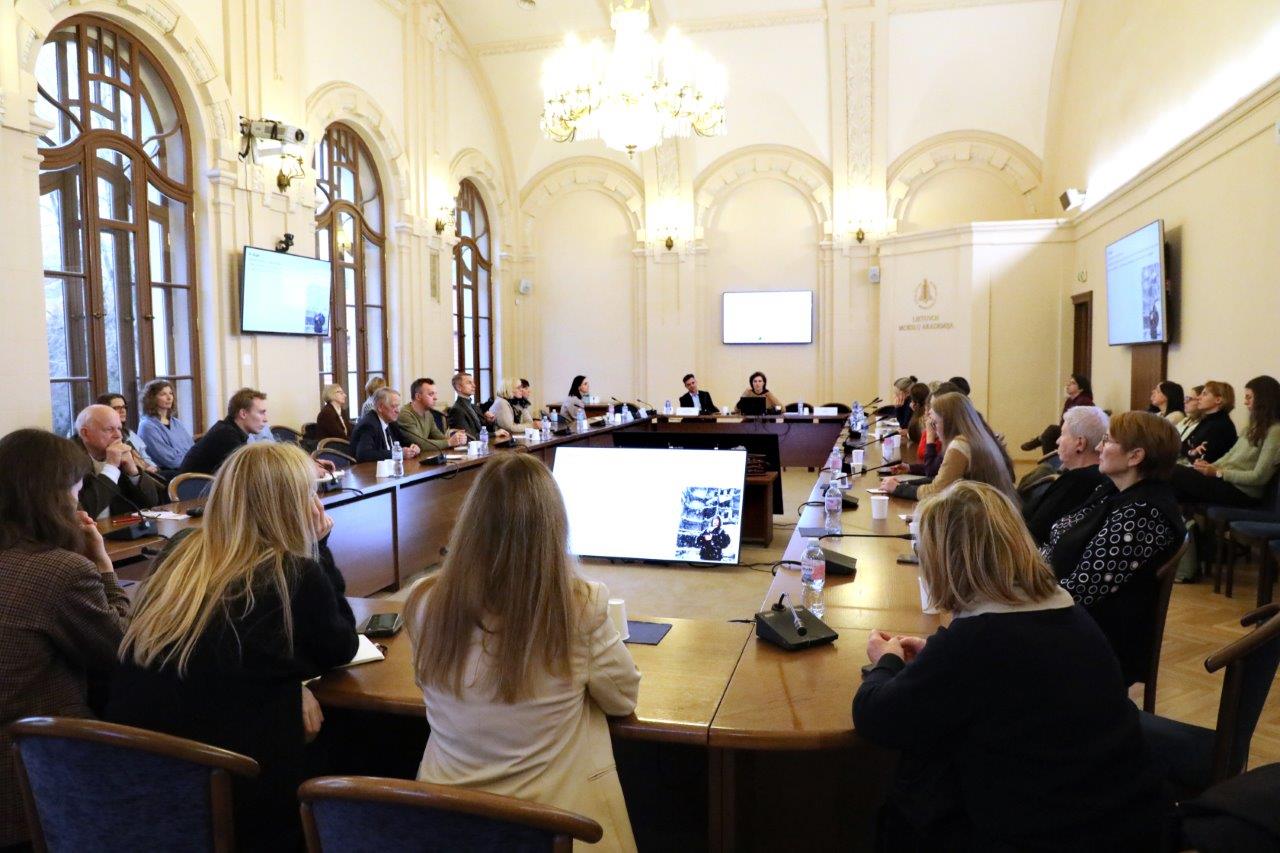
Participants of the event.
A discussion at the end of the conference explored opportunities for joint research and sharing experiences. Prof. Kazlauskas, who chaired the conference, pointed out that the experience of Ukrainian psychological scientists is of great value to Lithuanian researchers and practitioners of psychology in the development of research and knowledge in psychotraumatology, which is highly relevant for Lithuanian psychology.
Prepared by Dr Rolandas Maskoliūnas, Chief Specialist for Public Relations
Translated by Diana Barnard
Photography Virginija Valuckienė
PHOTO GALLERY
International Conference ‘Young Scientists for Advance of Agriculture AGRISCI2024’
The members of the Lithuanian Academy of Sciences Young Academy in the field of agricultural and forest sciences are organising the traditional 13th international conference of young scientists ‘Young Scientists for Advance of Agriculture AGRISCI2024’, the purpose of which is to bring together young scientists working in the scientific fields and directions of agronomy, agrobiology and agroecology, horticulture, forestry, veterinary medicine, agricultural engineering, food safety and quality, agrarian economy, and rural sociology and to promote their cooperation and dissemination of research results.
The conference will take place on 26 November 2024, at the Lithuanian Academy of Sciences (Gedimino Ave. 3, Vilnius).
Young scientists, doctoral students, and researchers are invited to participate. Conference participants register by filling out the registration form and submitting a one-page (300-word) abstract on the official conference website www.agrisci2024.com
Resolving Environmental and Climate Change Issues in Agriculture
Agriculture in the Nordic-Baltic region shares common challenges, such as short growing seasons and cold temperatures. Climate change influence agriculture and food and feed security in the Nordic and Baltic region in many ways, such as through rising temperatures, changes in precipitation patterns, increased frequency of extreme weather events, and pest and disease risks. These challenges can have major economic, social and production consequences. Research has a pivotal role in providing solutions for how the agricultural sector can respond to these challenges and how it can valorize new opportunities.
On 8–9 October 2024, the International Nordic-Baltic Conference ‘“Resolving Environmental and Climate Change issues in agriculture”’ was held at the Lithuanian Academy of Sciences. The conference was organised by the Nordic Association of Agricultural Sciences (NJF), the Lithuanian Centre of Agricultural and Forestry Sciences, the Division of Agriculture and Forestry Sciences of the Lithuanian Academy of Sciences, the Young Academy of the Lithuanian Academy of Sciences, the Research Funding Organisation under the Nordic Council of Ministers (NordForsk), the Nordic Joint Committee for Agricultural and Food Research (NKJ).
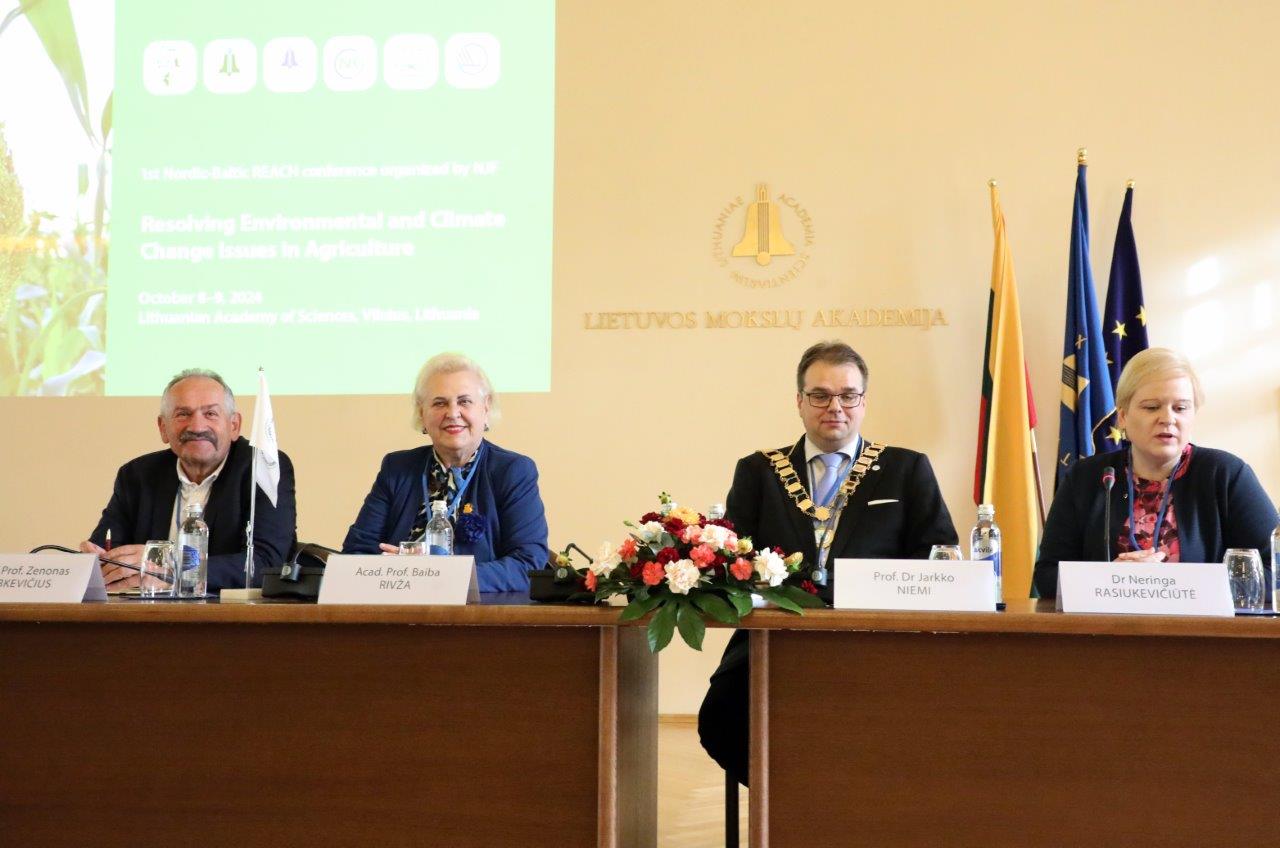
The opening of the conference. Left to right, Prof. Zenonas Dabkevičius (vice-president of Lithuanian AS), Prof. Baiba Rivža (vice-president of Latvian AS), Prof. Dr. Jarkko Niemi (president of NJF), and Dr Neringa Rasiukevičiūtė (a member of the Young Academy of the Lithuanian AS).
The conference was attended by around 75 scientists from Finland, Latvia, Sweden, Norway, the United Kingdom, Ukraine, Denmark, and Lithuania. The conference featured four plenary, 35 oral, and 22 short oral presentations.
Topics covered at the conference included: technological solutions for a cleaner agri-food system; biodiversity, plant and soil health in the context of a changing climate; sustainability and animal production; assessing the sustainability of the economy, the social impact, and the life cycle; modelling of agriculture, the food system, the environment, climate change, and European policies.
Dr Lillian Øygarden, head of research at the Norwegian Institute of Bioeconomy Research (NIBIO), spoke of the climate change challenges and adaptation plans for Nordic and Baltic agricultural strategies. Higher temperatures and longer vegetation seasons are known to have an impact on growing conditions in agriculture (likelihood of higher yields, longer growing seasons, etc.), but there are uncertainties about changes in sowing, tillage, overwintering conditions, and the spread of new diseases and pests. Temperature and rainfall extremes are creating new challenges in terms of the mitigation of the greenhouse effect, with plant adaptation strategies, and increased demand for food.
Dr Heikki Lehtonen, a research professor at the Finnish Institute of Natural Resources, presented solutions for integrating climate change and environmental challenges into economically viable agriculture. Agriculture contributes to greenhouse gases, changes in biodiversity and eutrophication of surface water, thus making adaptation to climate change a major challenge. Intercropping and multiple cropping can help reduce the use of chemical fertilisers and pesticides, increase yields, and improve crop rotation.
Dr Ainis Lagzdins, a professor at the Institute of Landscape Architecture and Environmental Engineering at the Latvian University of Life Sciences and Technologies (LBTU), presented challenges and solutions to reduce nutrient and transport losses in agricultural areas. Studies show that eutrophication of the Baltic Sea is caused by intensive agricultural activities. Agriculture is estimated to contribute 70–90% of nitrogen and 60–80% of phosphorus diffusion to the sea. Solutions are needed to reduce the transport of nutrients from agricultural regions to groundwater.
Per Hansson, the secretary general of the Nordic Joint Committee on Agriculture and Food Research, spoke of Nordic-Baltic agricultural cooperation for sustainable agriculture. The secretary general recalled the importance of international cooperation, presented funding opportunities, and encouraged the Baltic countries to join in the preparation of projects.
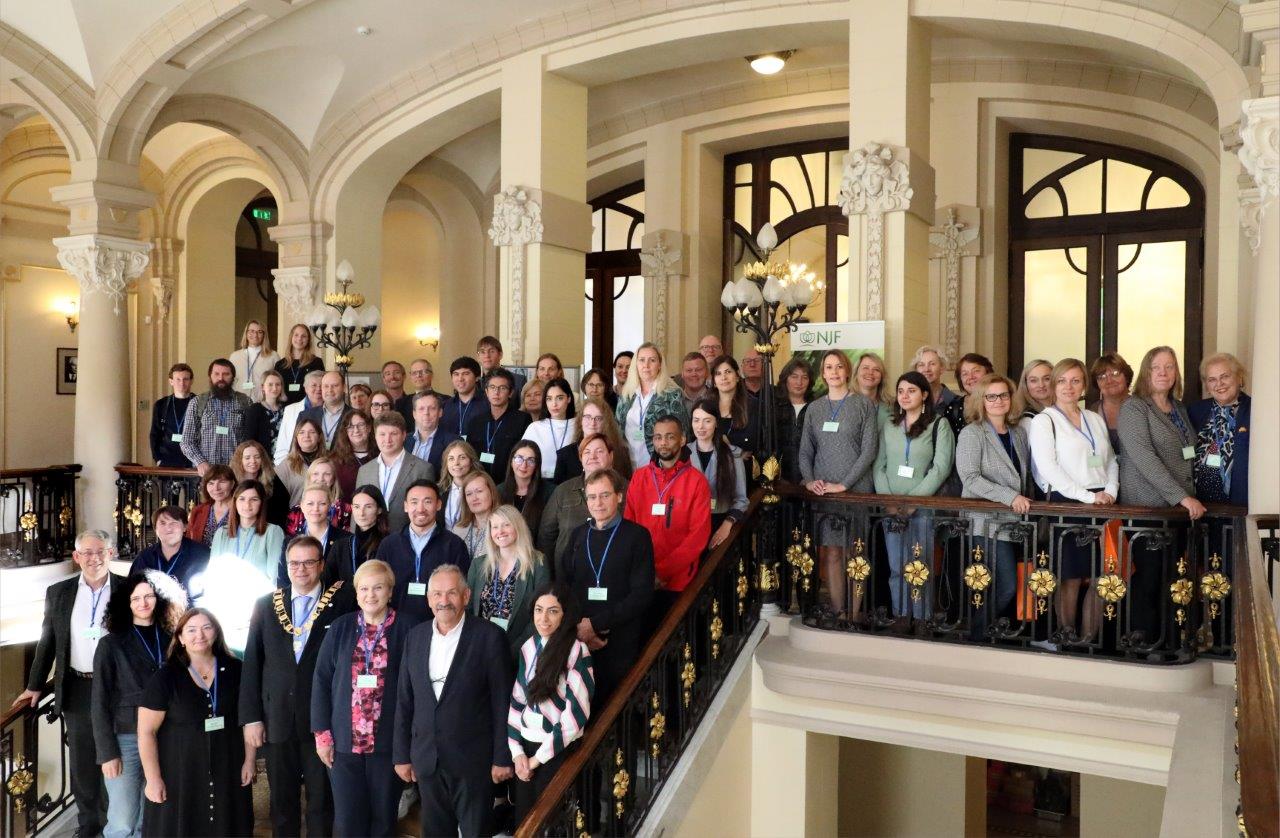
A group photo of the conference participants.
The conference provided an excellent opportunity to present research results, make new contacts, exchange ideas, and contribute to the solution of the issues of climate change. Programme and Book of Abstracts of conference is available on https://nordicagriculture.eu/wp-content/uploads/2024/10/2024_REACH_abstracts_book_public.pdf
Prepared by Dr Neringa Rasiukevičiūtė.
Translated by Diana Barnard.
Photo Virginija Valuckienė.
How AI Algorithms Help Transplantologists
On 25 April 2024, the Lithuanian Academy of Sciences hosted the conference ‘Organ Transplantation and Artificial Intelligence’, which was attended by cardiac surgeons, transplantologists, IT specialists, and other experts. In his welcome address, Prof. Jūras Banys, the president of the Lithuanian Academy of Sciences, noted that one-third of American companies were using Artificial Intelligence (AI). Europe is lagging far behind, and Lithuania has only 5% of such companies. There is no doubt that transplantology, the pinnacle of medicine, will also be increasingly influenced by AI. Prof. Banys expressed his conviction that these technologies would facilitate the work of Lithuanian transplantologists.
Prof. Gintautas Dzemyda, the chair of the Division of Technical Sciences of the Lithuanian Academy of Sciences, added that the breakthrough in this field came with the development of deep neural networks. Using this technology, artificial neural networks learn very complex things, especially in image analysis. Alongside this, classical machine learning techniques are being developed and widely used as an integral part of AI.
Prof. Limas Kupčinskas, the chair of the Division of Biological, Medical, and Geosciences of the Lithuanian Academy of Sciences, believes that transplantology is currently experiencing a boom. In Lithuania, two cities have university hospital transplant centres staffed by surgeons, cardiologists, nephrologists, gastroenterologists, anaesthesiologists, and other specialists. This has led to impressive results. In 2022, 32 liver transplants were performed in Lithuania: per 100 000 inhabitants, the number of these complex operations exceeds that of Denmark.
Prof. Jūras Banys, Prof. Gintautas Dzemyda, Prof. Limas Kupčinskas, and Audronė Būziuvienė, the director of the Lithuanian National Transplant Bureau
Audronė Būziuvienė, the director of the Lithuanian National Transplant Bureau, added that between 2018 and 2023, two transplant centres in Kaunas and Vilnius conducted 750 organ transplantations in Lithuania. Improved AI systems are expected to facilitate the transplantologists’ work and improve patient survival. This will help avoid situations where hearts, lungs, or livers have to be rejected because there is no team available (or not enough transplant bags).
The first part of the conference focused on heart transplantation. In his presentation, Prof. Kęstutis Ručinskas of Vilnius University (VU) spoke of heart transplantations at the Santaros klinikos of Vilnius University Hospital and noted that the main problem of Santaros klinikos was a permanent shortage of donor organs. One such untapped reserve is non-heart-beating donors. He spoke about advanced perfusion systems, which are capable of extending the viability of a donor heart, and of xenotransplantations, i.e., the use of genetically edited pig hearts. Prof. Ručinskas stressed that their centre was the only one in Lithuania to perform heart transplants in children, and that almost 70% of the patients (children and adolescents under 18 years of age) were still alive. He believes that AI could predict rejection reactions earlier and more effectively and improve donor-recipient matching, possibly allowing more donors to be identified for transplantation. The application of AI in these areas requires a regulatory framework to be put in place and the assurance of the quality of the data used. The processes are underway: for example, the EU Council is in the process of harmonising the AI law, and the EU Council and Parliament have agreed on the world’s first AI rules.
Left to right, Prof. Kęstutis Ručinskas and Prof. Rimantas Benetis
Prof. Rimantas Benetis, the rector of the Lithuanian University of Health Sciences and a full member of the Lithuanian Academy of Sciences, gave a brief overview of the history of transplantation in the world in his presentation on chest organ transplantation and AI. He reminded the conference participants that the first heart transplantation in Lithuania was conducted by the surgeon Algimantas Jonas Marcinkevičius in 1987, and that in Kaunas, the first heart transplantation was carried out in 2001. In Europe, the survival of such patients is better than in the US and North America in general. What can increase the number of donors? Prof. Benetis spoke about the advantages and challenges of heterotopic heart transplantation, non-heart-beating donor lung transplantation, and xenotransplantation. Regarding the latter, two patients with genetically modified pig hearts survived a couple of weeks. The Kauno klinikos University Hospital of the Lithuanian University of Health Sciences started performing lung and heart-lung complex transplants in 2007; it is the only hospital in Lithuania to perform such complex surgery. In Prof. Benetis’s view, AI can analyse the strength of the tissue rejection reaction and assess the patient’s pre-operative condition. Studies show that in nursing, AI already works even better than humans. However, the use is still quite limited, as AI cannot assess the environment and context, and if the input data for analysis is flawed, the conclusions will be the same.
Left to right, Prof. Juozas Kupčinskas, Assoc. Prof. Povilas Ignatavičius, Assoc. Prof. Tomas Vanagas, Dr Arnas Karužas
Dr Arnas Karužas, a cardiologist at the Kauno klinikos University Hospital, spoke about the potential of AI for image analysis in cardiology and transplantology. He said that an AI centre of excellence would be set up in Lithuania. Algorithms have now been developed that can be applied in medical practice for planning operations and assessing post-operative prognosis. AI anticipates and outperforms standard approaches in many areas; research shows that it equals and sometimes even surpasses human inference. It is therefore proposed to call such systems collaborative intelligence.
Recently, the number of publications on the use of AI in the diagnostics of heart failure has been rising. AI algorithms are already used in cardiac ultrasound; it is proving useful in 2D echocardiography for the diagnosis of specific pathologies.
In CT scanning, AI can be used without contrast material, thus reducing the risk to the patient. The speaker concluded that AI was particularly useful for anticipating risks and for more accurate selection of donors and recipients. Yet a lot of work is still to be done before such systems are more widely used in clinical practice. It will be necessary to integrate laboratory and clinical imaging data.
The second part of the conference was devoted to kidney transplantation. Arūnas Želvys, an associate professor at the Santaros klinikos Vilnius University Hospital, talked about kidney transplantation and AI in diagnostics and surgery. Currently, transplant surgeons use robots to remove a kidney, but doctors need to decide how best – by immersion or perfusion – to preserve the donor’s kidney, and how to find the optimal conditions for kidney storage before transplantation. The aim is to ensure that both the recipient and the donor survive as long as possible. This is where AI algorithms could really help, but, unfortunately, from the surgeon's point of view, the relatively small number of transplantations means that there is not enough data to develop such algorithms. In Europe, AI is not yet widely used either, but it is used in diagnostics and sometimes in robotic surgery. It would therefore be more accurate to speak not of AI but of extended intelligence, which enhances human abilities. On the market, there are various robotic surgical systems that summarise surgical performance, evaluate images, and can improve some of the surgeon’s functions and skills. The use of digital twins is on the increase. Basically, a digital twin is a digital model of a patient or diseased created on a computer. It is therefore possible to simulate how the functioning of the organ will change after a transplant or surgery. AI can even be used to educate patients, because people are so different, and AI tailors questions or answers to each person.
Prof. Inga Arūnė Bumblytė, of the Kauno klinikos University Hospital, talked about kidney transplantation and outcome prediction using classical mathematical methods. Lithuania is on a par with the European average in terms of the number of kidney transplants per million population. Survival rates are also improving. One of the problems transplantologists often face is the delayed function of the transplanted kidney. The researchers at the Lithuanian University of Health Sciences have identified the biomarkers that help predict this. Recently, biomarkers have received considerable attention because this would improve organ compatibility and allow better prediction of outcomes. Therefore, metabolomics is a very important area of science. All this is the result of the use of ‘natural intelligence’. The potential of AI is limited by the ‘small country’ status and the insufficient number of transplantations. Yet even with deteriorating quality of donor organs (due to co-morbidities) and the ageing recipients, transplantation results are improving.
The third part of the conference focused on liver transplantation. Prof. Kęstutis Strupas, a full member of the Lithuanian Academy of Sciences, reviewed the achievements of abdominal organ transplantation at the Santaros klinikos Vilnius University Hospital and noted that in the future, pancreas transplantation in diabetic patients may be replaced by pancreatic cell transplantation, which has been successfully started at Santaros klinikos, but the issues of long-term effect of this procedure still need to be resolved. The speaker stressed the importance of donor liver perfusion machines, which allow the use of inferior donor livers and ensure good transplantation outcomes. AI could help with donor selection and optimisation of the organisational aspects of abdominal organ transplantation.
Prof. Juozas Kupčinskas, an alumnus of the Young Academy of the Lithuanian Academy of Sciences and the head of the Gastroenterology Clinic of the Lithuanian University of Health Sciences, presented the results of liver transplantation at the Kauno klinikos University Hospital and briefly discussed historical aspects. The first successful liver transplantation in Lithuania was performed at Kauno klinikos in 2000, and in 2022, this hospital performed 19 liver transplants, which was the highest number of such transplantations in the country. The speaker also introduced a number of EU and other international research projects on cirrhosis and liver cancer, which are being carried out at Kauno klinikos and which also use AI techniques.
Dr Povilas Ignatavičius, an associate professor at the Surgery Clinic of the Lithuanian University of Health Sciences, shared his two-year experience of working as a surgeon at the transplantation centre in Zurich (Switzerland) and pointed out that the methods of using the non-heart-beating donor liver should be adopted from this country; for this purpose, it is necessary to change the legislative basis and to achieve the National Health Insurance Fund to cover the cost of the procedures of perfusion of donor livers.
In his presentation, Prof. Gintautas Dzemyda reviewed the application of AI methodologies in predicting the outcome of liver transplantation surgeries at the Santaros klinikos Vilnius University Hospital and pointed out that these modern methodologies would be developed in cooperation with the Washington University Hospital (USA), where Assoc. Prof. Aistė Gulla, the co-author of the presentation, started working.
Summing up the conference, Prof. Limas Kupčinskas, the chair of the Division of Biological, Medical, and Geosciences of the Lithuanian Academy of Sciences, thanked the speakers and noted that the application of AI in the healthcare system opened up a wide range of opportunities, and joked that GPs will not lose their jobs as a result. Yet it is worth knowing what US health experts have predicted: in the future, doctors who use AI may displace doctors who do not embrace these innovations.
The conference closed with the screening of Dominykas Kubilius’s documentary film Resurrection co-created with LRT in collaboration with the transplantation centres of the Kauno klinikos University Hospital of the Lithuanian University of Health Sciences and the Santaros klinikos Vilnius University Hospital, donor hospitals, and other partners. The film can be found here https://we.tl/t-6jMpA7UCCT .
Dr Rolandas Maskoliūnas and Prof. Limas Kupčinskas
Photography Virginija Valuckienė
Translated by Diana Barnard
State Awards to Members of the Lithuanian Academy of Sciences and the Young Academy
On the occasion of 16 February, the Day of the Restoration of the State of Lithuania, President Gitanas Nausėda awarded state decorations to citizens of the Republic of Lithuania and foreign countries for their services to the Republic of Lithuania and for the promotion of Lithuania's name worldwide. Professor Valentinas Mikelėnas, a full member of the Lithuanian Academy of Sciences, and Dr Ieva Plikusienė, the chair of the Young Academy, were among the awardees.
Prof. Valentinas Mikelėnas, an academician, doctor habilitatus, was awarded the Cross of Commander of the Order of the Lithuanian Grand Duke Gediminas for his extraordinary merits in establishing the system of private law in Lithuania, the development of the legal discipline of private law and the civil procedure, and for his long and significant teaching activities.
Dr Ieva Plikusienė, an associate professor, was awarded the Medal of the Order of the Lithuanian Grand Duke Gediminas for her research in biotechnology of the highest international level that contributes significantly to scientific progress in various fields, and for the promotion of Lithuania's name worldwide.
On this occasion, the community of the Lithuanian Academy of Sciences extend their congratulations and best wishes to Prof. Valentinas Mikelėnas and Dr Ieva Plikusienė.
Prepared from information of the President’s Communication Group
https://www.lrp.lt/lt/prezidentas-iteike-valstybes-apdovanojimus-uz-nuopelnus-lietuvai/42290
Translation: Diana Barnard
Winners of Lithuanian Science Prizes 2023 Announced
On 6 February, the Commission for Lithuanian Science Prizes announced the winners of these prizes for 2023.
In the field of the humanities, the prize is awarded to Mindaugas Paknys for his cycle ‘Studies into Pažaislis Monastery and the Camaldolese Order (the 17th–19th Centuries)’. In the field of the social sciences, the prize is awarded to Evaldas Kazlauskas for the cycle of studies ‘Research on Psychological Stress: Diagnosis, Prevalence, Coping, and Effectiveness of Psychological Interventions’.
The laureates in the field of the natural sciences are Jūras Banys, Mantas Šimėnas, Jan Macutkevič, Šarūnas Svirskas, Sergejus Balčiūnas, Vidmantas Kalendra, and Robertas Grigalaitis for their research cycle ‘Microwave Spectroscopy of Functional Materials’ and Arūnas Jagminas for his research cycle ‘Studies into the Formation, Characterisation, and Applications of Marketable Nanotructures’.
In the field of medicine and health sciences, Laura Malinauskienė and Rūta Dubakienė are awarded the prize for their cycle of research studies ‘Food and Chemical Allergy: From Neonatal Cohorts to Epidemiological, Experimental, and Molecular Studies’ and Kęstutis Ručinskas, Vilius Janušauskas, Robertas Stasys Samalavičius, and Pranas Šerpytis for their research ‘Introduction of Mechanical Circulatory Life Support Systems into Clinical Practice and Improvement of the Methodology’.
Antanas Žilinskas is awarded the prize in the field of echnological sciences for the series of studies ‘Innovative Algorithms for Complex Global Optimisation Problems’.
Information: press release of the Commission for Lithuanian Science Prizes
Translation: Diana Barnard
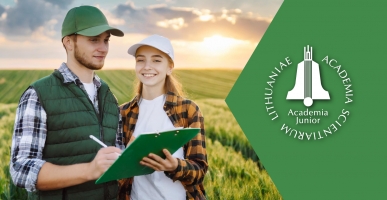
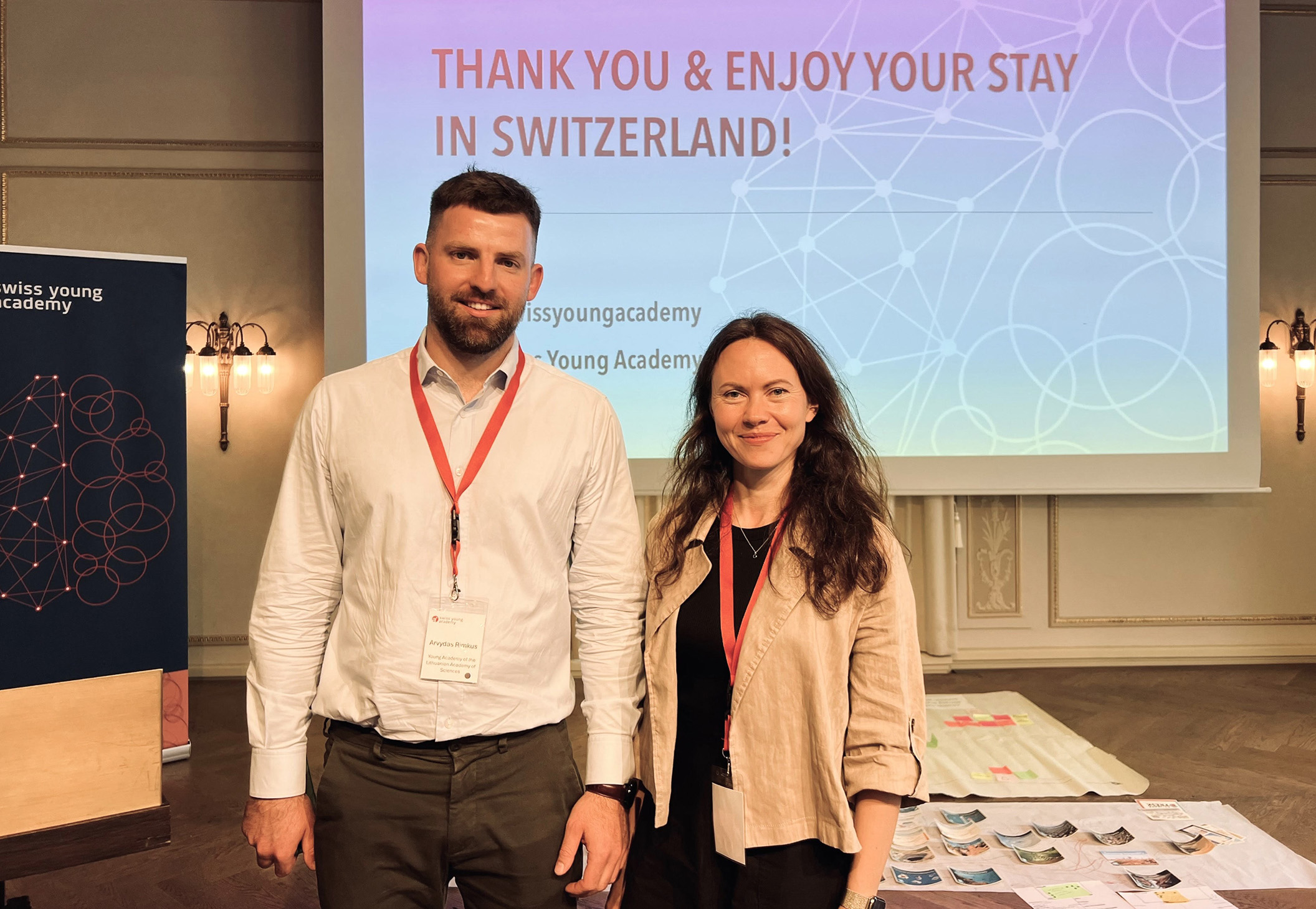
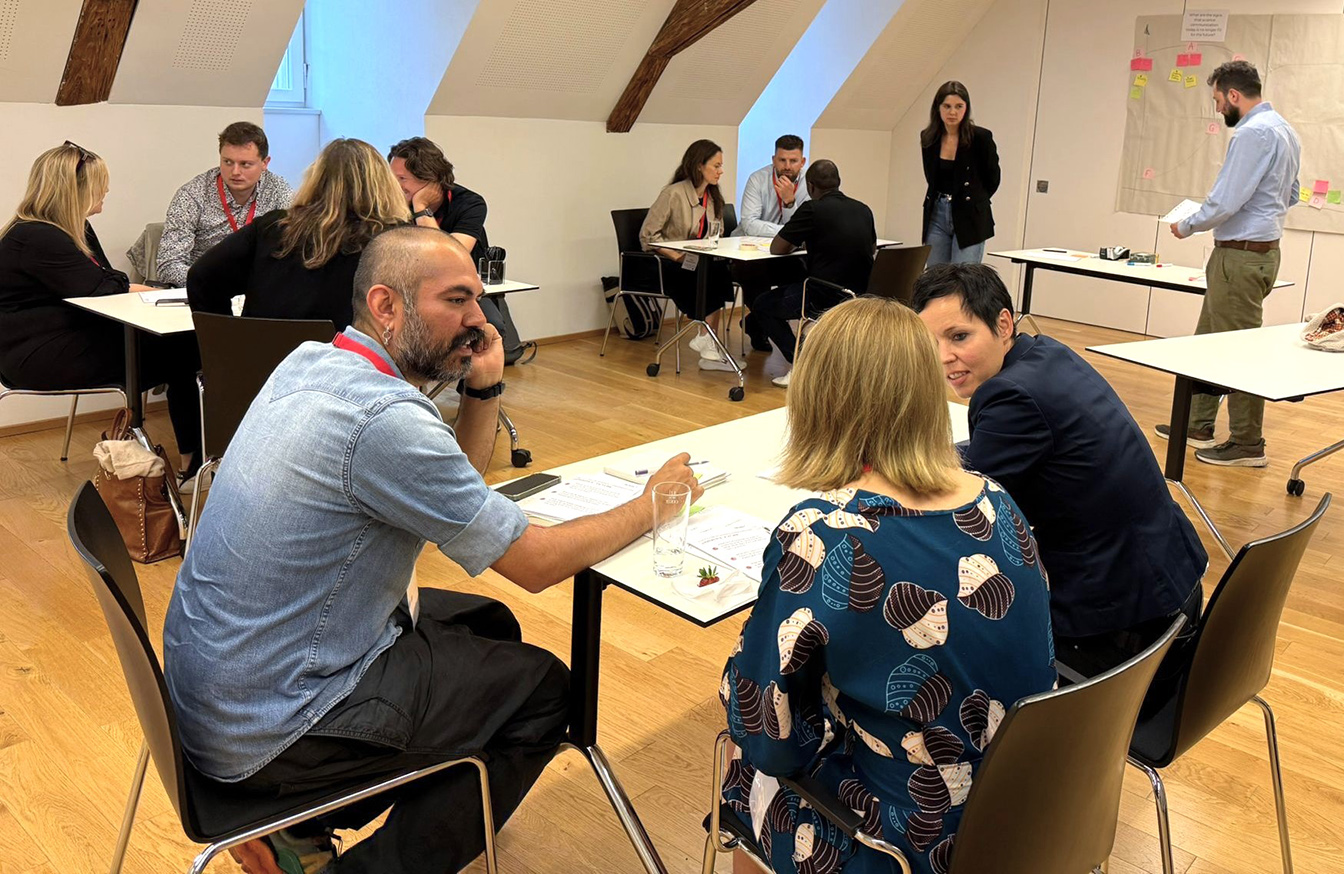
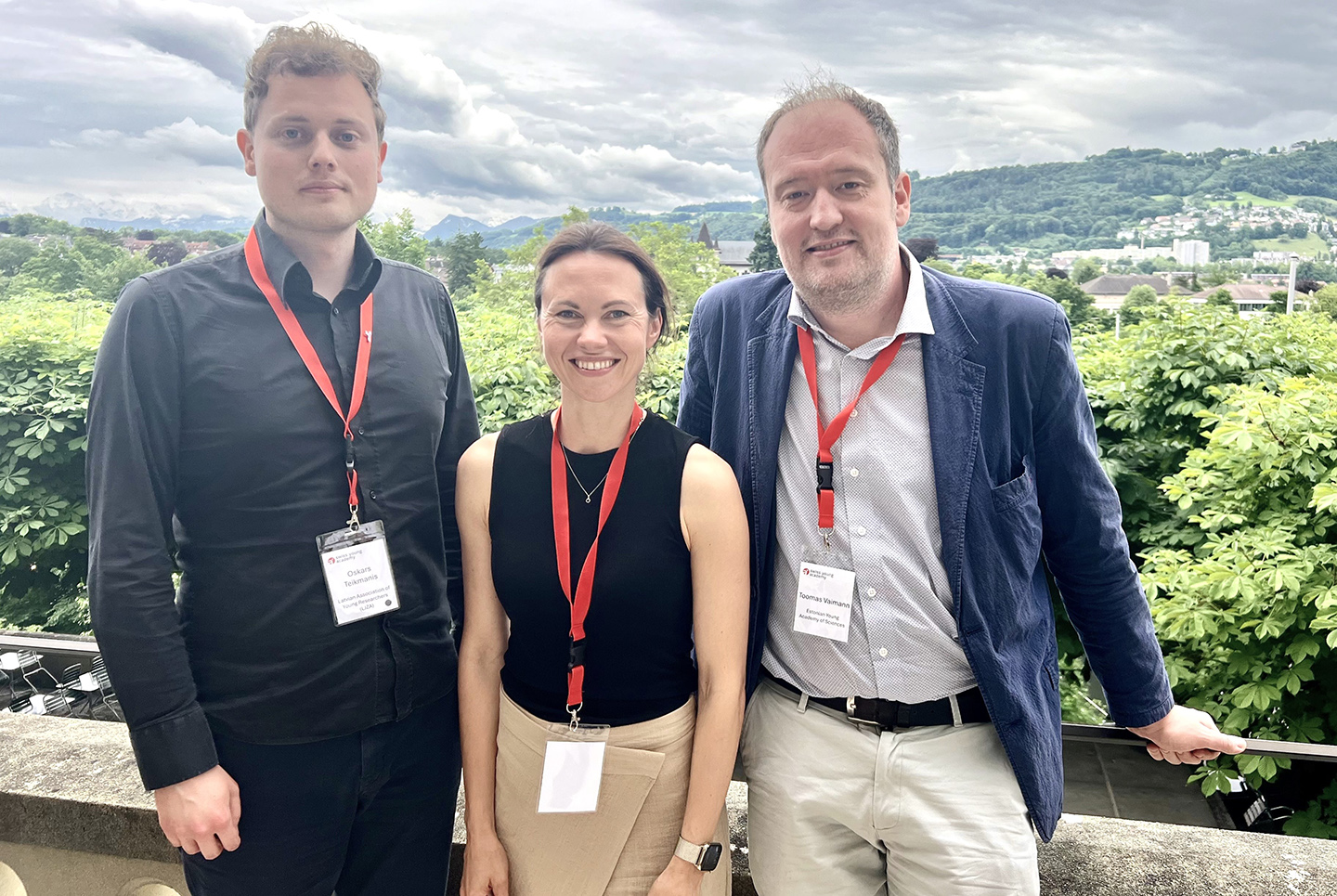
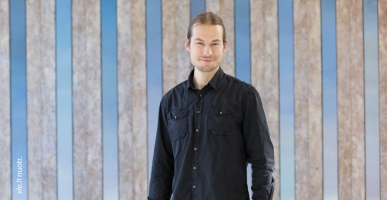
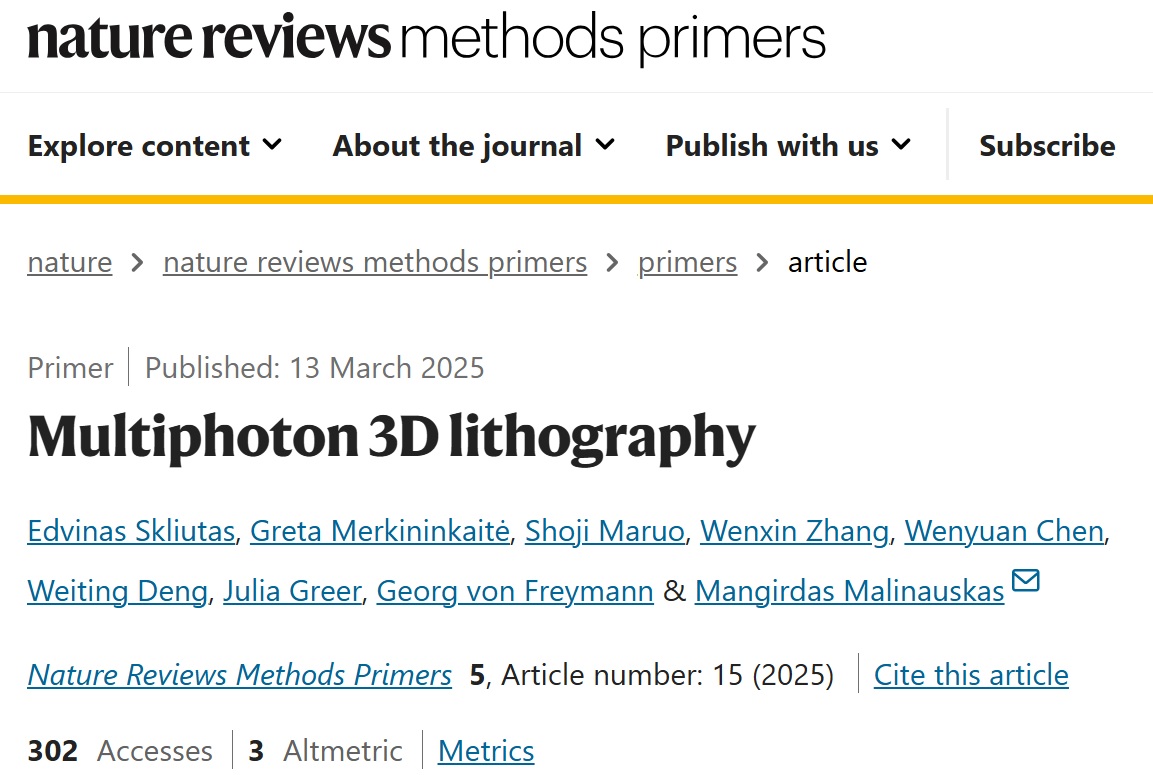
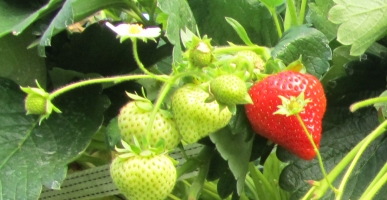
.JPG)
